#she is also the only character who does it which like fair considering many of the other POVs are her relatives
Text
Lmfao at Brandon realizing like “I guess I did write Shallan as bisexual” like brother she describes Jasnahs perfect face hair body and swag each and every time she sees her. Shallan is around Jasnah presumably all the time and still whenever Jasnah walks into a room Shallan is absolutely gagged
#stormlight archive#shallan davar#jasnah kholin#do I have a crush on her or do I want to be her extra hard mode#she is also the only character who does it which like fair considering many of the other POVs are her relatives
615 notes
·
View notes
Text
GojoHime: Evidence and Discussion

Jujutsu Kaisen isn't a romance series. It's a horror action series that focuses more on platonic bonds and camaraderie between its characters. That being said, just as any shounen series, it has its fair share of ships, each with its own assortment of crumbs and small details.
GojoHime is a particularly interesting ship to look at. Being a massive fan of it myself, it's fun to pick through the evidence that supports it. I'd like to share the evidence that I and many other GojoHime fans have found. I'll be starting with the smaller, weaker evidence first and working my way up to the strongest evidence.
Before I start in earnest, I want to clarify that this isn't made to attack any other ship. People can ship whatever they want, and no ship in the series is canon (aside from exceptions like Hakari and Kirara). I like GojoHime so I want to talk about it. That's really it.
With that out of the way, let's begin.
First, let's start with the evidence outside of the manga itself. This one isn't very compelling, but it is cute. In Japan, there is a chip brand called Bakauke. Bakauke has two mascots known as Borin and Barin, who are girlfriend and boyfriend. When Bakauke collabed with Jujutsu Kaisen, Utahime and Gojo were chosen to represent the Borin and Barin respectively, thus being depicted as girlfriend and boyfriend.


Moving on to evidence found within the actual manga, we see that on the splash page for Gojo and Utahime, the print behind them depicts arrows known as a Yagasuri pattern. In Japan, this is a symbol often used for weddings. It's meant for good luck because "a shot arrow does not return," and therefore, a married woman does not (or should not) return to her parents.
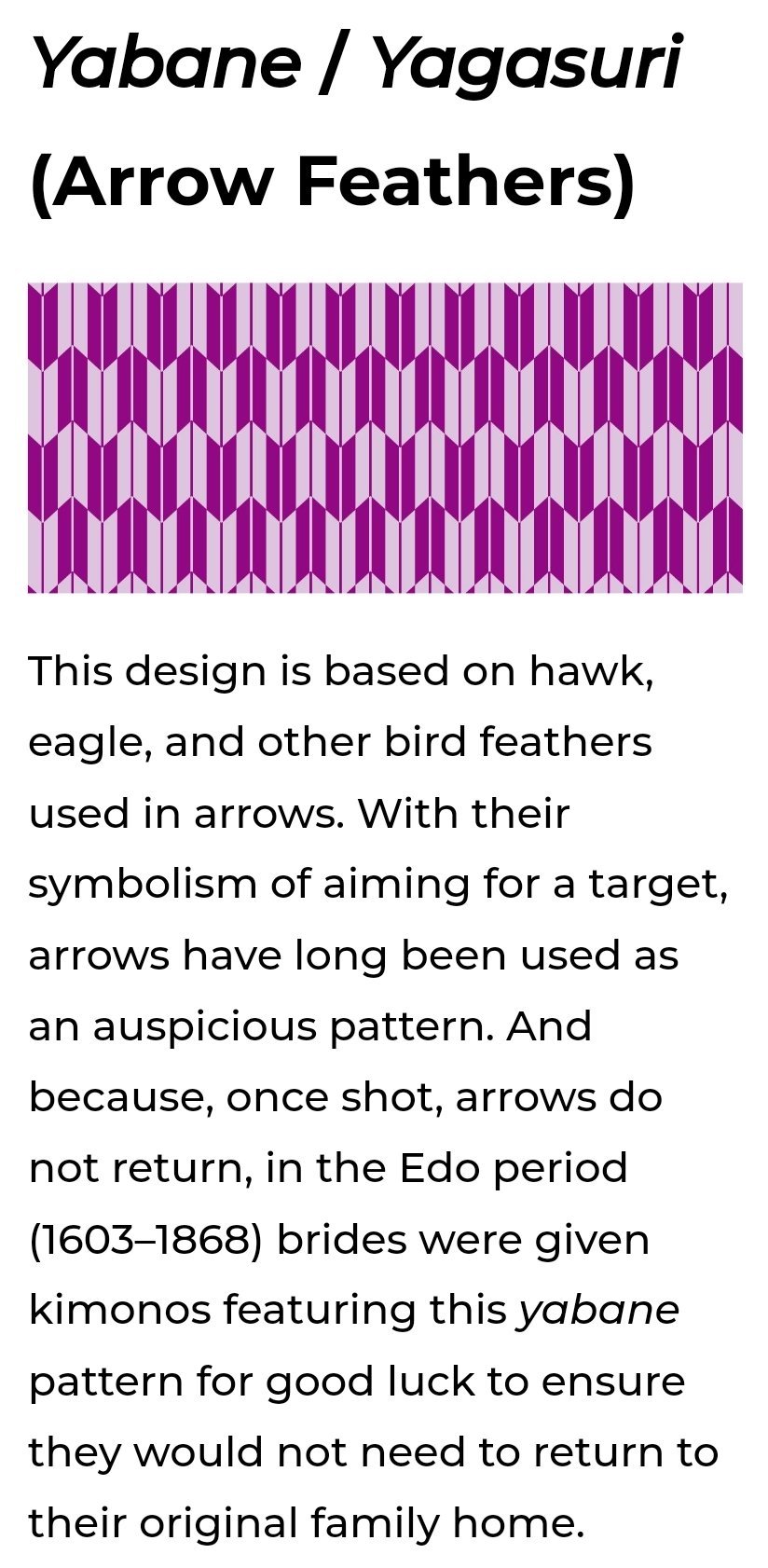
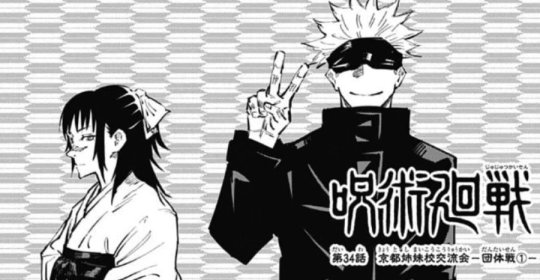
We also see depictions of them under an umbrella often used at weddings. Sharing an umbrella is also a common romantic trope in Japan.
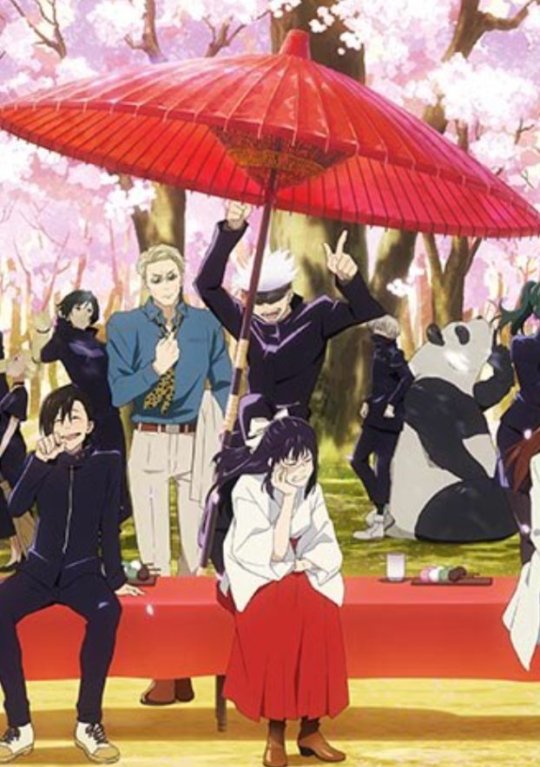
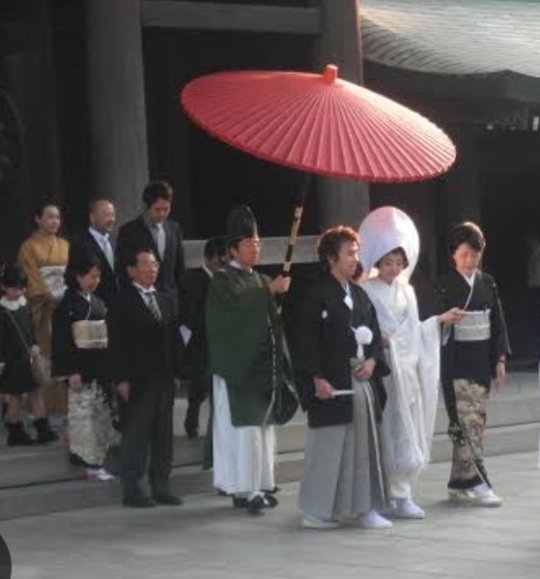
Other smaller evidence exists in the form of their phone call. This consists a beeper code, where the number of their call spells out "I like you" in code, and another interesting detail is that Satoru calls Utahime from his recent contacts, implying that he calls her often.
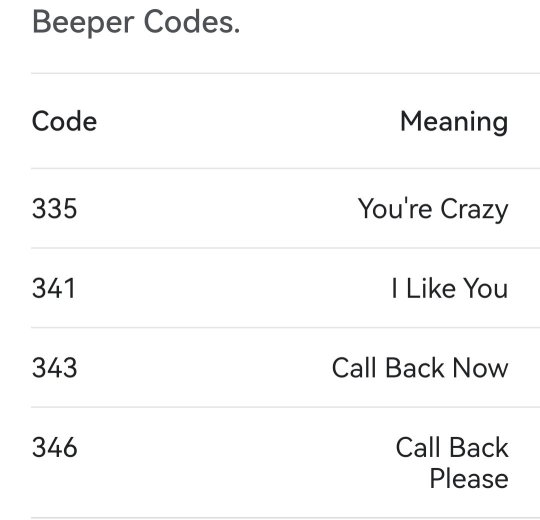
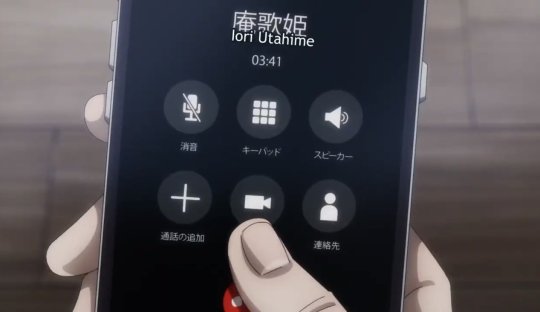
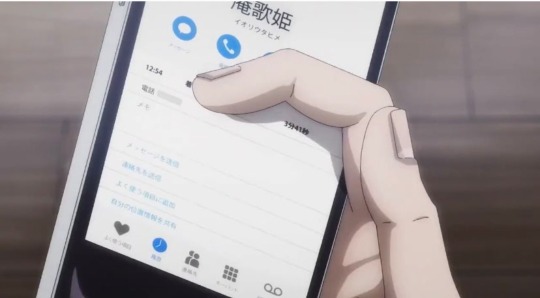
Gojo and Utahime were made to be opposites. Aside from the obvious "opposites attract" trope, it creates a compelling visual story between them. Man and woman, strong and weak, modern and traditional, blue and red. Satoru hates alcohol and loves sweets while Utahime loves alcohol but hates sweets.
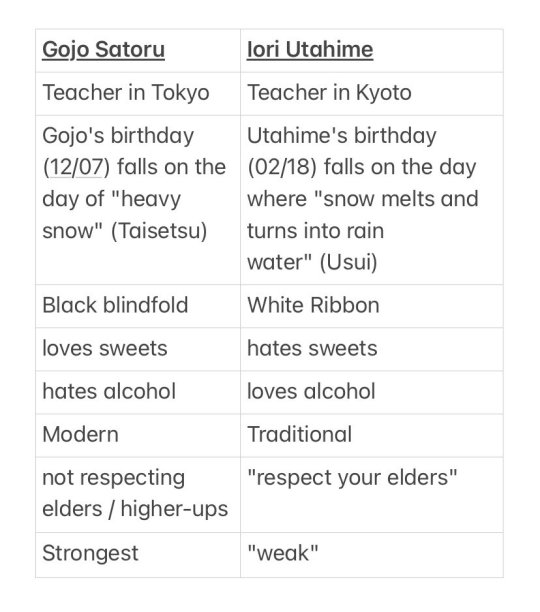
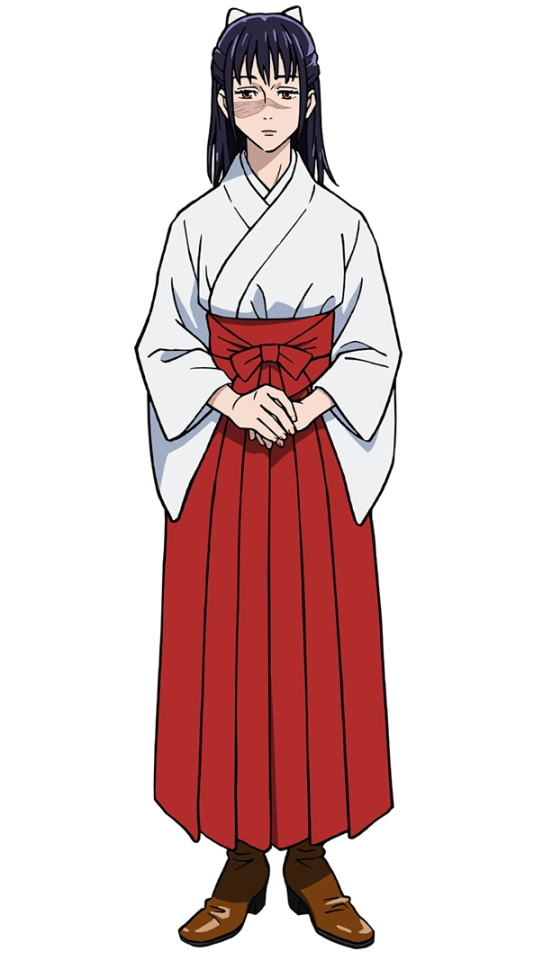

Gege said Gojo only puts down his Technique with people he trusts, which we see him do with Utahime. He trusts her enough to have to actively put his Technique back in place after she throws a teacup at him.
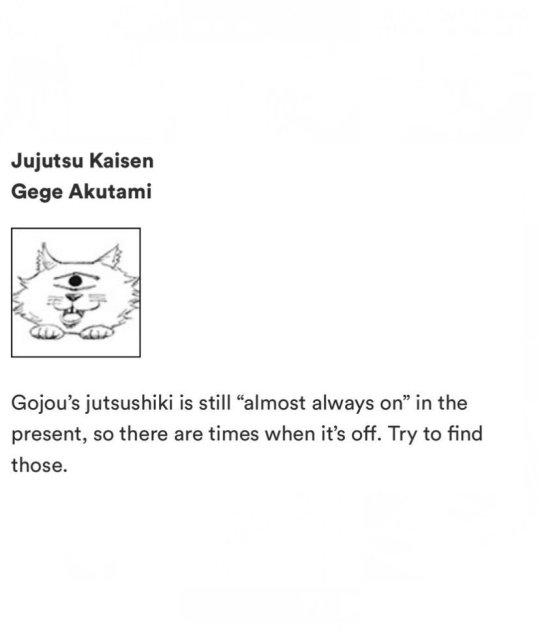
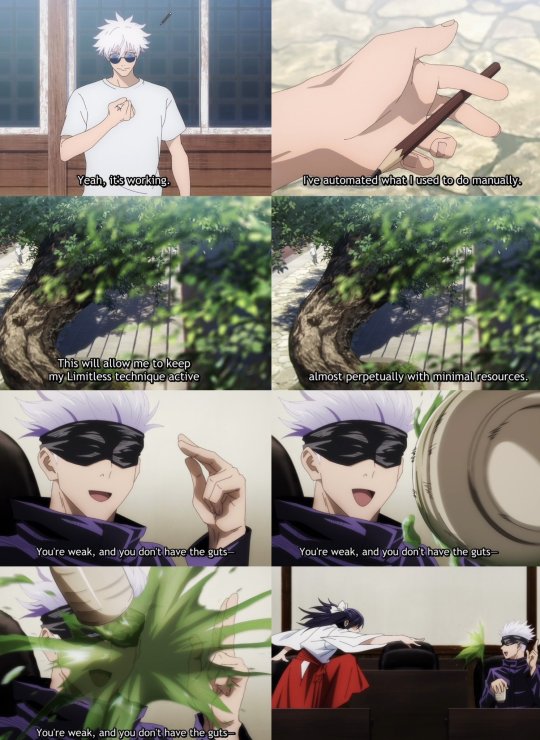
Moving on to some of the strongest and most convincing evidence, we have Waka Inoue, Utahime's very own technique, and Gege's past works.
Gojo had a picture of Waka Inoue as his background as a teenager. He clearly finds her attractive, as is common, considering she's a popular model, but the reason why this is important is that Inoue shares a lot of similarities with Utahime.

Both women have noticeable bangs, they're the same height (166cm), and they share a love for alcohol, karaoke, and sports, specifically baseball. Waka is described once as a "competitive crybaby who hates to lose," and as we see in the Anime, Gojo has a way of firing Utahime up and she is also prone to being a bit of a scaredy-cat and a crybaby. We also see her more competitive side come out during the baseball tournament between Kyoto and Tokyo.
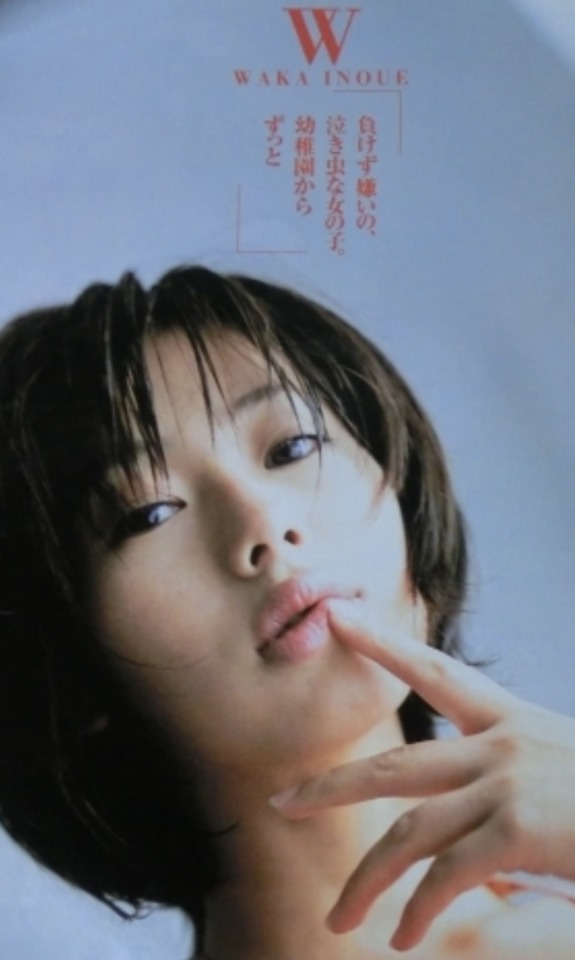
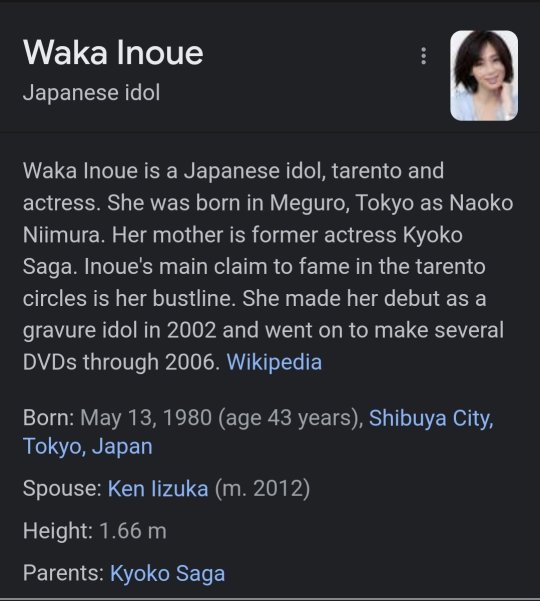
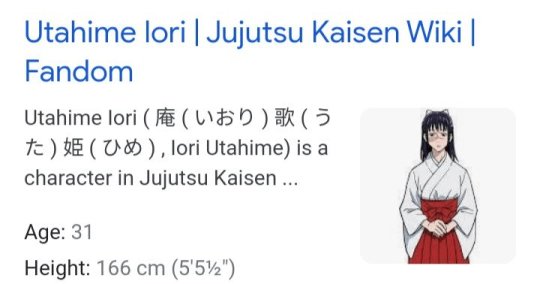
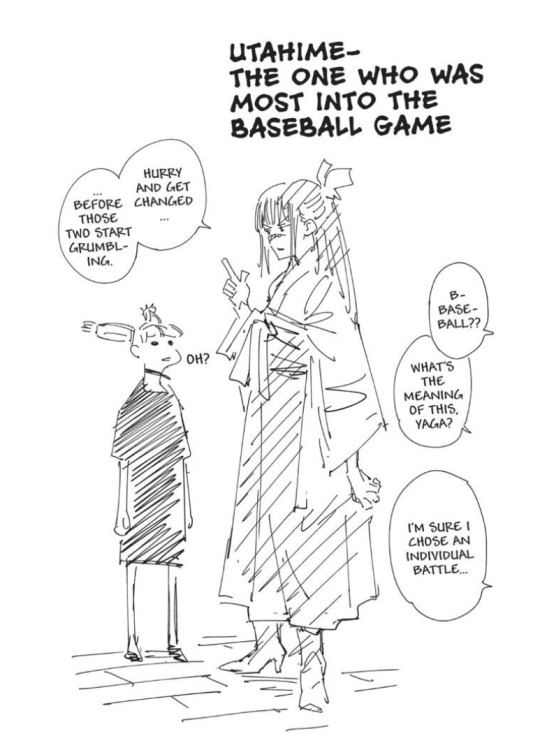
Moving on to Utahime's Cursed Technique, as some Japanese fans have pointed out, Utahime's Soro Soro Kinku (Solo Forbidden Area) is based on a real love song about forbidden love with lyrics about a masked lover. The records from the singer, Akina Nakamori, are called Utahime records, and the singer even does Gojo's unlimited void hand sign during her live performances of her song, "Fin."
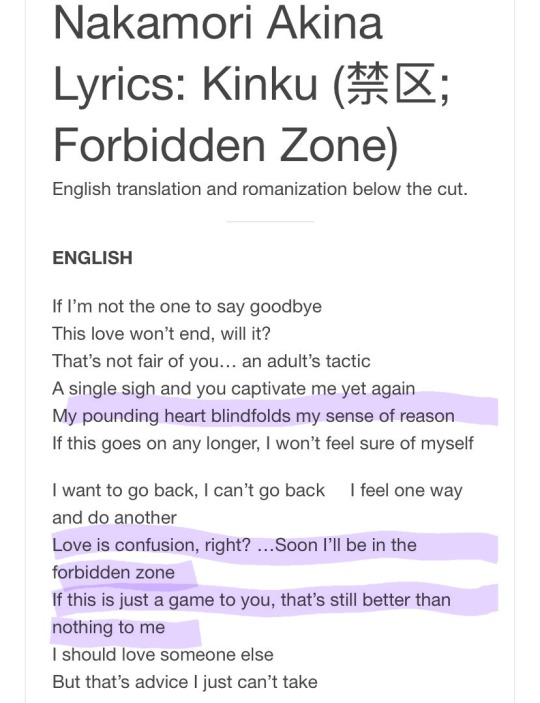
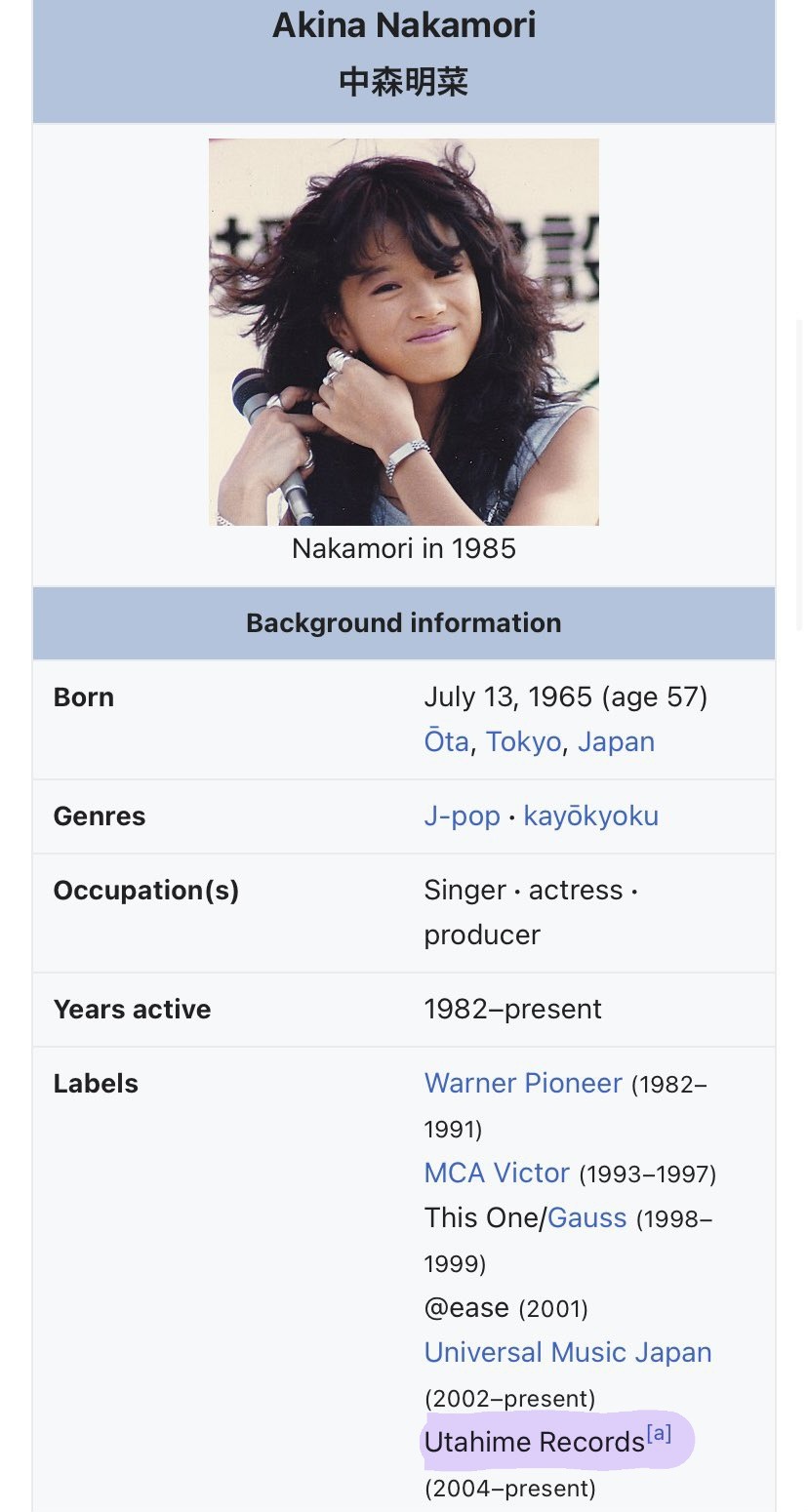
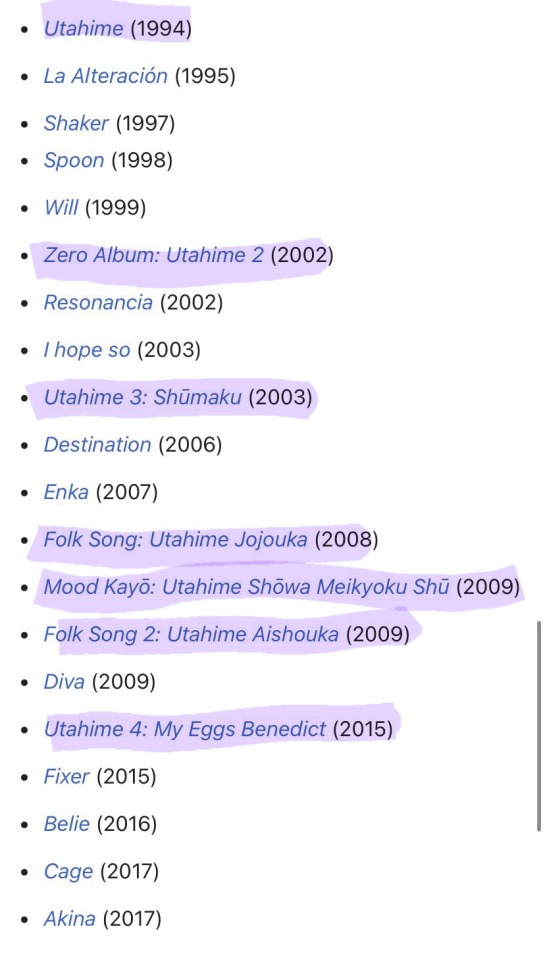
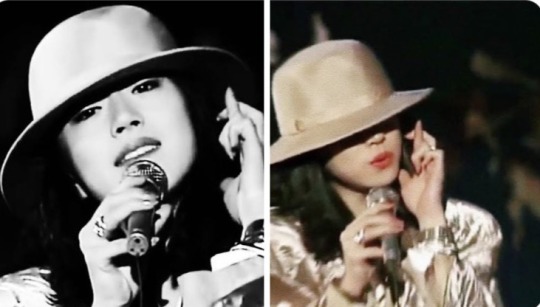
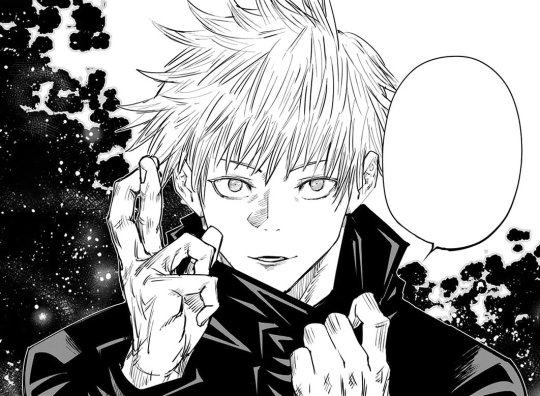
The most compelling bit of evidence for me is Gege's past works. Two of his three one-shot manga have characters who are very similar to Gojo and Utahime. The male protagonist is usually cocky and teases the female protagonist, while the female protagonist gets annoyed at his antics but is otherwise down to earth and kind.
In Nikai Bongai Barabarujura, the protagonist, Noroma, reminds me of teen Gojo in appearance and behavior. He is "the strongest" who teases Nodoka, the female protagonist, for being weak but has an obvious respect for her drive and inner strength.
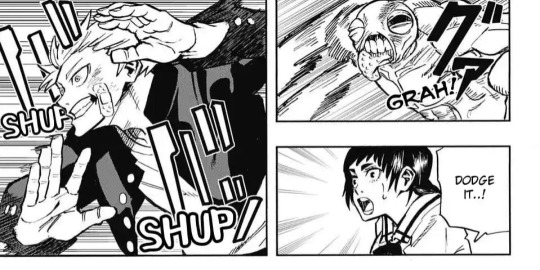
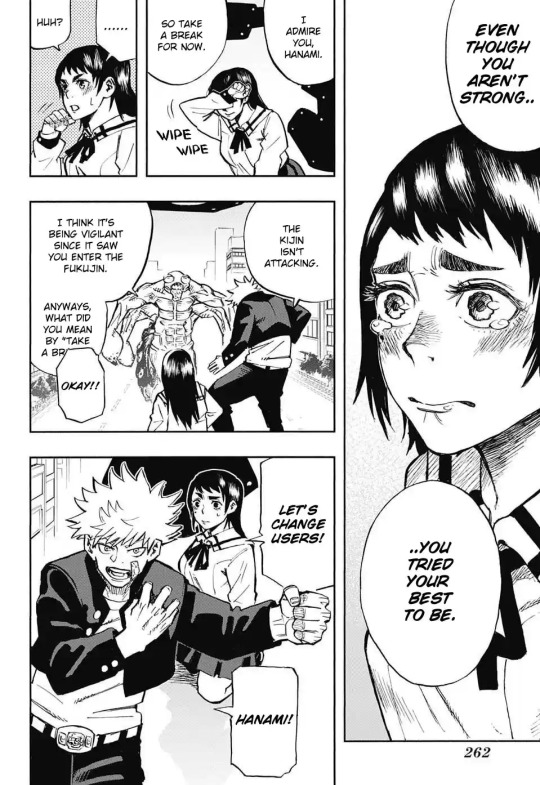
In Kamishiro Sosa, we have a similar set-up as before. The male protagonist, Ganji, is very energetic and careless with the female protagonist, Rekko's, feelings, and is seen to have a very similar type of banter as Gojo and Utahime have.
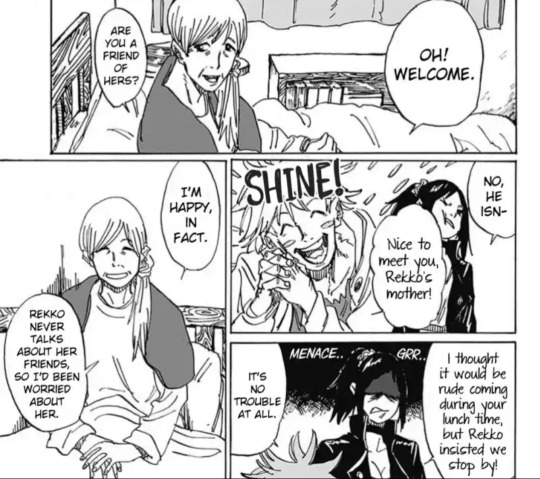
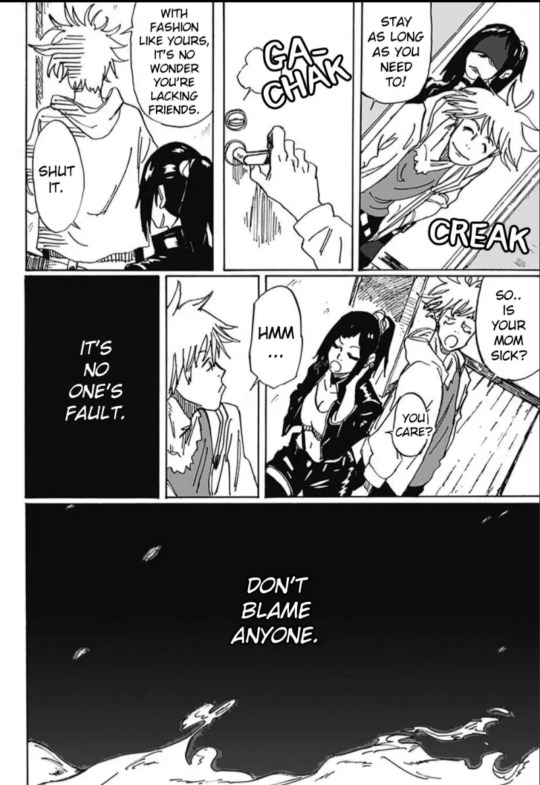
Gege clearly likes that type of pairing, which isn't surprising given the bickering couple and rivals to lovers is a popular trope in romance. It's not unusual for Mangaka to reuse old ideas, and that seems to be what happened with Gojo and Utahime. Even their appearances share similarities.
As you can see, GojoHime has a lot of thought put into it, and it's very interesting to see the little details Gege has put into their dynamic. There's definitely a reason why so many adore this pairing, and I'm glad Gege has paid attention to that.

565 notes
·
View notes
Text
after that wack-tastic piece of media i figured we could all!! use a break!!!!!!! so!!!!!!
(more) doodles below the cut. and some commentary! Hurray!

^^ Post game is interesting. Most of the timeloop is about figuring the deal with the memories, some of it is about sif comng to terms with the king, and the very very end of it is about everyone regaining their memories.
so i say it again post game is REALLY interesting!!! because everyone, collectively, is trying to balance their old memories and their new memories. everyone except siffrin. who is not 1:1 old siffrin but is the closest to it, considering how much loop's been through.
loop??? becomes corporeal at some point in the end.
it's very bittersweet! i think! the whole of the party does an "i want to remember!!!" sequence, fighting with their own minds to fill the gaping holes they'd always ignored.
-- loop, after realizing the extent to which they're familiar with the party, had tried desperately to get the party to remember them throughout the loops. in hopes that something would change. they never remembered.
at the same time, siffrin is talking to the king - they're fighting with eachother physically and verbally, desperately trying to get the other understand. resetfrin is not the siffrin the king hated so earnestly, not the siffrin he tried to snuff out.
over the course of many conversations with the king, siffrin caught on. the king is the major lore dump here and is who causes most of the narrative development because i say so !!!!!!!!!!!!
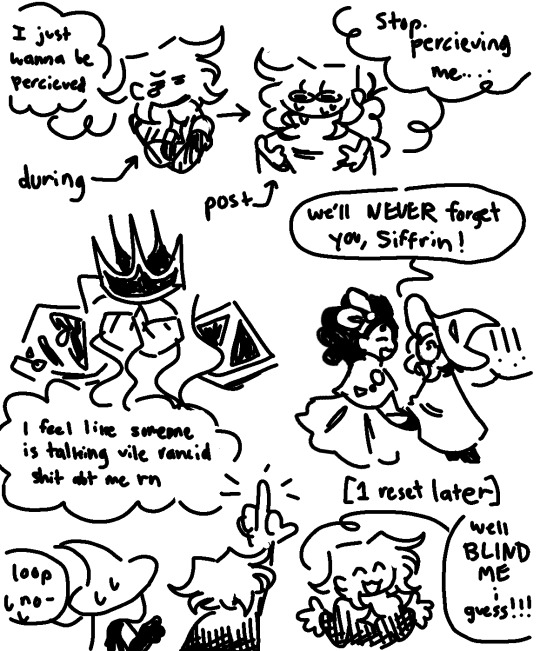
actually. about post game. do you know why their designs are like that
resetfrin hated the lack of autonomy he had over their own body so they decided to. cut their hair. it's a bit curlier now that there's not a lot weighing it down
they decided not to keep the star stuff the king gave them. yada yada character development or whatever.
they gave their cloak to loop!! who is. siffrin again. physically at least. both siffrins are siffrin but with clear differences! like hair length and hair texture! and ohhhhhhhh no what do you mean the universe gave them the wrong body?? what?????? how cruel!!! how blasphemous!!!!!!!
loop hated the idea of keeping her hair darkless (mirror pronouns for loop btw!!! remember that!!!). it reminded them of what it was like to be ghostloop. which they hated!!! but they couldn't have their hair be lightless because that was resetfrin's new thing, so... they just. kept dying the bottom parts of it lightless. it's a compromise
how does the party distinguish the two siffrins, name-wise? uhhhhhh. ask me that question later. idk.
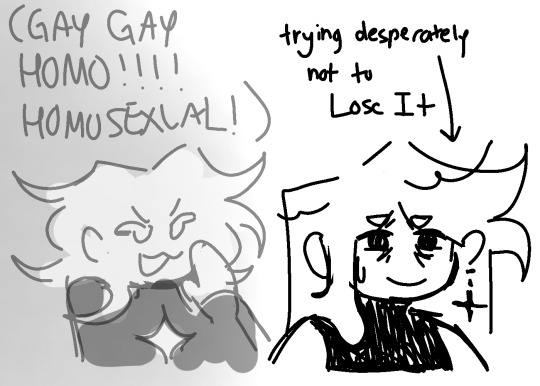
if.... if i have pre-game planned out. and post-game planned out.
then the inly thing I don't have planned out is the ACTUAL time loop bit
it's quite daunting because? that's like the entire point of the original game? it feels like i hve to live up to so much and like fhe loops have to have such a packed, coherent story
though, to be fair, most of what I'm writing will just be. the time loop bit. so i guess I'm figuring it out as i go
anyway, actually talking about the two sketches above, ghostloop is for SIFFRIN'S EYES ONLY!!! she can hit things but things can't hit her and all that.
after figuring out, through past loops, that the King can't see them, they realized siffrin was their only connection to the physical world. The Last Piece Left of them, physically and metaphorically. the whole time they longed for something else to acknowledge their existence. acknowledge theyre real
they also realize they can do Fuckery
the king has a Sixth Sense for loop's Fuckery,,, flipping him The Bird resulted in a rather quick death for Siffrin. whoops!!!!!

this au is. more closely revolved around gloop than i thought. don't worry!! i have a lot of gloop content planned! but. but you need to understand the pain of resetfrin and the king. the misery snd desperation fhe king felt about his country. siffrin pleading with the king, countlessly, hoping to see some SEMBLANCE of the man he once knew. you need to know the missing pieces the party finds, a hollow feeling settling itself around their hearts. you need to know so bad.
so you'll get gloop content! i am a big fan of the little guy myself, really. but !!! this au is not ONLY about them, believe it or not! hehe. haha. giggles. ok ill stop
#isat reset au#resetfrin#ghostloop#post game#i am going to sound INSANE without the necessary context#for the people who followed for writing#i am sorry to disappoint lmaooo#posts about this au will vary drastically depending on which part of the story im particularly fixated on#the party has a lot of complicated feelings abour resetfrin and ghostloop#both on their own#and also them as a pair#and i need to stop thinking about that before I've even written the BEGINNING OF THE AU#which will be the next writing i post#yknow. just a treat. for the people who read tags#the king's wish and subsequent reset is actually something ive been thinking about for a while#so i hope the way i write it will do my vision justice#to reset a kingpin#rambling#memes#doodles
100 notes
·
View notes
Text
The Disappointing Case of Wendy Corduroy
Wendy Corduroy has a lot of potential, but too often is pushed to the side by a lot of fans, and even by her creator. But not for lack of trying, or an interest in the character. In fact, Alex’s idealised view of Wendy may have been her greatest obstacle in receiving a story of her own. Dipper isn’t the only one who seems to consider her ‘the coolest person he knows.’
Wendy was inspired by the first girl who ever spoke to Alex Hirsch, as well as several people the creative team thought were cooler than them. These were likely special memories or people in order to base a fictional character on them. But that puts her on a pedestal. And when someone puts you up there, it’s hard for them to take you back down. Either for fear of ruining you or concern that, when others look closer, they’ll be disappointed in what they see.
He wanted her to be a main character (in the same way Soos is, if not Stan, Dipper, or Mabel) but in many ways Wendy feels like a side character. She never receives her own episode, and lacks the character arc that even some side characters like Pacifica and Robbie received.
Her family, her friends inside the Shack and out, her physical abilities and survival skills, the drama of being a teenager, not to mention being a resident of the weirdest place on Earth. All of these can lead to a hundred stories across the spectrum. So why do people not write more stories about her?
Maybe it’s because she wasn’t given the opportunity that others had.
As a cool, older redhead, Wendy’s main role in the show was being Dipper’s crush. Which already puts her at a disadvantage because it means they designed her purpose first, character second. In fact, this is probably why she changed so drastically from her vegan-hippie prototype seen in the Gravity Falls bible. Everything from her boots to her hat has changed since then, save the way she makes Dipper’s heart go faster.
Most of her appearances in season one featured this one-sided romance and Dipper’s attempts to impress her, which usually resulted in a morality lesson about being yourself and not doing dumb stuff to impress others. Pretty standard cartoon crush territory. But between the episodes, a real friendship bloomed.
In The Time Traveller's Pig, she gives an indifferent shrug as she casually agrees to go to the fair with Dipper, yet before her injury - and in the timeline where she avoids it altogether - she’s shown to genuinely enjoy his company. A couple of episodes later and she’s outright excited at the prospect of working alongside Dipper at the pool. They have regular movie nights. They crack jokes and tease the Shack’s customers. Climb trees and play at the arcade. Wendy spends more time with Dipper than any other character. Which means she must care about him more than she does the rest.
The crush might be one-sided but the affection is not.
But in the DVD commentary of Into The Bunker, Alex Hirsch, Matt Chapman, and Rob Renzetti mention that fan feedback convinced them to end Dipper’s crush sooner rather than later, even supposedly having ‘KILL THE CRUSH’ as one of their main story goals for season 2. Understandable. The crush episodes weren’t always the best, and if it was always intended as an unrequited attraction then better to get it over with rather than draw it out. And it’s a good lesson to have a young boy learn, especially around twelve. Love and puberty are relatable, but no less frustrating for it.
Into the Bunker is my favourite episode for multiple reasons, not least for Wendy’s presence in it. She shows off her friendship with Dipper in the cold open, reveals her lumberjack and fighting skills later, and shows she would be an excellent adventurer. I see it as a prime example of What Could Have Been. I especially adore the ending, where she lets Dipper down so gently, it’s a beautiful scene. As sad as Dipper feels, he’s also been told by someone very special to him that he’s very special to her too. Maybe not in the way he wants, but perhaps in an even more important way.
I had high hopes after that episode. I remember thinking this meant she would develop beyond just being his crush, especially now we’d seen her hold her own against the weirdness and danger. I really wanted to see more of this adventurous, sensitive Wendy we’d missed in season one, and wanted her to be a regular companion and friend to the twins.
Wendy appears in 16 episodes in the first season, and 15 episodes in the second if you don’t split Weirdmageddon 3 into two. In season one she appeared in but didn’t participate in the adventure of key episodes like Dreamscaperers or Gideon rises. In season two, she joins the adventure in Society of the Blind Eye, The Last Mabelcorn, and the Weirdmageddon trilogy, but has limited interaction or story impact in most episodes, save Love God. She only has what amounts to cameo appearances in Not What He Seems and Tale of Two Stans, two of if not the most important episodes of the series.
Including each of the Weirdmageddon trilogy, she’s referenced via Dipper’s lingering crush six times, including episodes she doesn’t even appear in. So, after Into The Bunker, Wendy goes from being Dipper’s crush to…his crush that appears less.
Wow, they really failed that Kill the Crush mission, didn’t they?
Perhaps the biggest issue is that she is so keenly tied to Dipper. I love the Dipper and Wendy relationship, I could write a massive essay on that alone. But it is such an incredible waste that she didn’t get a chance to interact with the others nearly so often. Every other main character has relationships with others. Soos has a father-son bond with Stan as well as a friendship with the twins. Ford was introduced later in season 2 and still interacts with Soos and Fiddleford as well as his family. It’s a hindrance to her character that most of her interactions were for Dipper’s arc, yet she received nothing of her own.
Wendy spends some time with Mabel, trying to help her with boy trouble (not the best person to get dating advice from, Mabel) in Hand That Rocks the Mabel and Society of the Blind Eye, then goes along with the girls to keep them safe in Last Mabelcorn. This lets us see her affection and big sister vibes don’t end with Dipper, and should have been explored far more. Her interactions with Soos and Stan are also limited, mainly to the workplace. Her only dialogue with Ford is one line in Journal 3.
Yet we also never see her be by herself. We never see her home life, or how she entertains herself away from her friends or work. She's always interacting with a main character or her group of friends. No alone time or personal interests are seen beyond pranks and reading magazines to avoid work.
We even get to see Robbie Valentino’s home life and musical hobbies, but not hers.
This lack of independent material has even continued in the Book of Bill where two of her very limited mentions is in regards to Dipper being stuck on a tree and another is his search history. Even her own dream is made into a joke at Dipper's expense. Ten years later, and so much of her is tied to Dipper, specifically to mock his feelings for her. I don’t know if that’s more insulting to Dipper or Wendy at this point.
Speaking of dreams, let’s get to another issue: her mother. Who we know nothing about. In a show so heavily focussed on mysteries, the fate of Mrs Corduroy is a question that’s been left hanging since season one and we have come no closer to an answer of any kind. Even a direct question from fans on both the Alex Hirsch and Bill Cipher AMAs were answered so vaguely they told us nothing. She’s no longer with her? A Fountains of Wayne reference? Even the Book of Bill’s reveal that Wendy dreams about her most nights says nothing. Are these good dreams? Nightmares? Memories? The implication is that she’s dead, yet not even that has been confirmed. For all we know, Mrs Corduroy could be dead, missing, abandoned her family, or could be working on an oil rig for the summer. Your guess is as good as anyone’s by this point.
We know she’s Manly Dan’s oldest and his only daughter, but we didn’t even learn her brother’s names until a paste up sheet was released in 2017. She barely shares a scene with any of them, and when it happens it’s in the background. The only exception I can think of is their group hug in the Fearamid. A tender moment which would have been so much better if we’d actually seen her engage with them beforehand. Her lack of interaction is especially jarring considering her confession in Society of the Blind Eye: "Okay, I'm not actually laid back. I'm stressed, like, 24/7. Have you met my family?"
Not really, no. And for a show that’s about family as much as it is about mystery, it’s a shame that Wendy is let down in both areas.
Even side characters like Robbie, Pacifica, and Grenda receive more character development, despite their limited importance or screen time. In fact, it was recently pointed out to me that Archibald Corduroy, Wendy’s ancestor, is more integral to Pacifica than his own descendant. Once again, Wendy’s interactions come up short, including from her own family.
With the release of the Book of Bill, some people were hopeful that she might finally get some attention. I wasn’t. Personally, I think Bill simply has a low opinion of Wendy anyway since he called her a pushover in his AMA, so it can be fitting he doesn’t mention her often. But it’s also the context of these mentions, and those on the website. On Thisisnotawebsite.com she’s referred to twice - Her one contribution is a simple note where she pranks the reader. Then she’s mentioned in Stan’s list of embarrassing moments.
Ten years later and not only are her contributions incredibly minor, but they’re as much to do with other people as herself, if not more so. She’s supposed to be a main character but she might as well be a cameo.
Her lack of representation is so bad, that I realised my friends were celebrating her being mentioned in The Book of Bill. That’s how desperate we’ve become for Wendy material. And I’m sick of it. At this point, I’m anticipating a Wendy story as much as I am Winds of Winter.
Last month I was discussing some of my writing ideas with my father. And he gave me a very hard truth: it doesn’t matter how good your ideas are, if you don’t act on them, they’re only ideas. And he was absolutely right. It doesn’t matter how great these ideas are in my head, if they’re only in my head then what good are they?
Hirsch has been saying for years he’s wanted to do more with Wendy, but he hasn’t. Not in the show, the comics, or the other material. Intentions, like ideas, are useless if you don’t do something about them.
I honestly hate how harsh this sounds. I love Gravity Falls. And I love Wendy. And I believe Alex Hirsch does too, he just…doesn’t know what to do with her. As he says in the Inconveniencing commentary: “We wanted to honour her so much that we couldn’t figure out the right episode with her because we didn’t want to mess her up.” He’s put her on a pedestal just like Dipper did. And I think she needs to come down so we can see how awesome she really is.
So, what can be done to fix this? Well, when creators don’t have the time, interest, or ability to do something for a series, that leaves the fans to fill in the gap.
I urge other Gravity Falls enthusiasts to try and give her the attention and character development she sorely deserves, especially now there’s a resurgence of activity and interest. Draw or write her if you can, have her interact with other characters, not just be a crush, explore her depths. And if you can’t, seek out those who have or can and ask their advice, or thank them for their work, offer encouragement. For Wendy if not for them.
I want to leave this on a happier note and say that I’m going to follow this up soon with another essay, this time offering advice on writing Wendy. Even talented writers I admire have surprised me by saying they struggle to write her, yet I’ve found it pretty easy. So hopefully I can encourage other people to write her too.
But if I could summarise what I want to see and what I think will help people write Wendy, it would be this: She’s not just Dipper’s crush, and she’s not just the cool girl. She’s bigger than that.
She’s Wendy Flippin’ Corduroy and she deserves so much more.
Cheers, Milky Boy Blue
76 notes
·
View notes
Text
The Rules of the Cosmere
And by “rules,” I mean tropes that crop up repeatedly in Sanderson’s books, that one could consider “rules” in a nonserious, please-don’t-take-this-too-seriously type way.
Spoilers for pretty much all of the Cosmere!
1. Don’t feed the children
As seen in: Elantris, Oathbringer, Warbreaker
If you see a hungry, homeless child in a Sanderson book and you’re tempted to, say, give them food--don’t! Raoden tried that. And the poor child was horribly mangled by the men who wanted that food. Shallan tried it. And it turned out the child was being coerced into accepting the food by gang leaders--who ended up killing the child. Vivenna didn’t exactly feed them willingly, but the urchins did, like, beat her and steal her food while she was living on the street. So that wasn’t great.
Exception that proves the rule: Stump. She fed lots of orphaned children, and she was only almost killed. So the message is: if you want to feed the children, have a Lift around to protect you.
2. Once Marriage is On The Table, Breakups Don’t Really Happen
As seen in: Mistborn Era 1, Mistborn Era 2, Stormlight Achives, Elantris, Warbreaker
Once characters get to the point of marriage, be they engaged or in an arranged marriage or just solidly A Thing, it is rare for them to break up. Sometimes a breakup is floated--like when Adolin told Shallan she could go ahead and leave him for Kaladin or when there was Wax/Steris tension or when Zane tried to break up Vin and Elend--but in the end, the original relationship tends to hold strong. Siri and Susebron were married before they had even met, but they ended up happy together. Even “death” couldn’t stop Sarene and Raoden’s engagement--Sarene did try to marry someone else, to be fair, but that second marriage did not actually happen and the original marriage reigned supreme.
Exception that proves the rule: Elend’s first engagement did not work out. Vin killed the fiancée. So it is slightly riskier to be engaged if you’re not a viewpoint character, if you’re secretly evil...or if you’re in Vin’s way.
Although...did Elend and Shan actually break up, or was their engagement only canceled by Shan’s death? I guess either way, it didn’t work out!
3. Your enemy will save you...if the sexual tension is high enough
As seen in: Elantris, Rhythm of War
Perhaps appearing in two books isn’t quite enough to call this a rule...but if I had a nickel, etc. Hrathen was Sarene’s enemy...but in the end, he kinda fell for her and ended up killing himself to save her. And in a strangely similar manner, Raboniel used her dying moments to save Navani...after Navani was the one to kill her. Then there’s Lewshi and Kaladin--neither sacrificed themselves to save the other, thank goodness, but Lewshi does help save Kaladin and/or his men on several occasions and their romantic tension is off the charts.
Exception that proves the rule: Even sexual tension doesn’t seem to be enough for Moash to not try to drive Kaladin to suicide.
4. Your fave is (accidentally) queer
As seen in: Stormlight Archive, Mistborn
Sanderson has a tendency to write characters that he innocently believes to be straight...until readers point out how incredibly not-straight they are. Take Shallan, who is as bi as the day is long--which Sanderson admitted, I believe, once it was pointed out to him. Veil is canonically into women, at any rate. And Sanderson has said that both Shallan & Adolin would be open to adding Kaladin as a third, so Adolin is presumably bi as well, to no one’s surprise. Many readers--me included--read Kaladin as some flavor of ace, although again, that seems to be unintentional, canonically speaking. There’s also Lewshi, a woman inhabiting a male body, whose transness is not really talked about as such but is very present. And in Mistborn, there’s Wayne and his gender-fluid SO MeLaan, a queer relationship that I don’t think is ever really identified as such.
And yes, there are also canonical queer characters in actual queer relationships, but so many more seem to be accidentally queer.
Exception that proves the rule: Sanderson insists that Moash is canonically straight...somehow.
5. Don’t trust the underling priest!
As seen in: Way of Kings, Warbreaker, Elantris
If there are suspicious things going on, look no further than your nearest, seemingly loyal underling priest. In Way of Kings it was Kabsal, who turned out to be an assassin. In Warbreaker, the seemingly helpful and awkward Bluefingers tried to sacrifice Siri on an altar. And in Elantris, while Hrathen never exactly trusted Dilaf, he did believe that he had him handled...which turned out to be a mistake, and Dilaf ended up being one of the big bads. The big bad? It’s been a while since I read Elantris.
Exception that prove the rule: Kadash seems like a good dude. I will be genuinely shocked if he tries to, like, murder Dalinar or something.
6. Hoid is there
As seen in: All of them.
Hoid has a supernatural ability to be present at all important moments in the Cosmere, so he can expect to find him in whatever book you’re reading. If there actually are Cosmere Rules, this would have to be one of them.
Exception that proves the rule: I don’t think he’s in all of the Arcanum Unbounded stories--like Shadow for Silence or Sixth of Dusk. So maybe if your story is short enough, you can escape Hoid?
It could be the only way.
457 notes
·
View notes
Note
It absolutely gets me that the whole thing about Rhaneyra putting her siblings to the sword was made up by Otto, Rhaenyra did nothing to indicate that she would; Alicent just fixated on it like- how do they forget that they literally pulled that crock of shit out of thin air? 😭
it gets me too, especially show-wise. the only time rhaenyra shows any bit of fire against her siblings is during the driftmark incident, where it is blatantly obvious to anyone with a brain that she was bluffing when asking for aemond to be sharply questioned. granted, should she have done it? no. is she also a mother trying her best to protect her kids? and not being a super uber-perfect person in the process? yes to both. this is yet another change from the book i don't like, considering alicent demands luke's eye in retribution first, and rhaenyra retaliates against that rather than starting it.
i'm also adding some significant points that make no sense in the greater context if alicent truly thought her children's lives were endangered; which is how she actively antagonizes rhaenyra. in both medias. she raises her children to hate rhaenyra, to view their nephews as inferior and subhuman to them due to their blood, she instills fear for their lives as a part of their everyday activities, she tells her children that aegon will be king no matter what (which is treason, so she doesn't seem to care that badly about her children being found out as participants of those efforts). she does not act like someone who believes her children are going to be murdered once rhaenyra ascends the throne. it's why i can't take her stans seriously. none of her actions make sense in the grand scheme of things. she purposefully makes an enemy that is (TO HER) capable of cold-blooded murder. what terrified mother would do that?
there's also this fetish for infantilizing and victimizing alicent and co. otto manipulated her when she was a teen, which is a fair take. otto was also ostracized from court for TEN years. ten years with minimal to no contact with alicent. she is no longer a child during that time, she is a grown woman with four children to raise and a perfectly good brain to use. we're not shown or told once that rhaenyra *ever* showed an ounce of violence towards her siblings, and at most, she was indifferent to them. it is stated, however, that during that time skip alicent bullied and harassed rhaenyra, to the point where she abandoned the capital to have peace of mind and safety for her own children. still not the actions of a terrified mother (she also wasn't manipulated into doing any of that; it was all of her own accord because she hated that rhaenyra was afforded more freedom and leeway than she was).
what's more, there is minimal, if any, precedent that rhaenyra would be forced to kill her siblings to secure the throne. viserys was only the fifth targaryen king, not exactly enough time to really establish any killing family as a basis. maegor is the only one to have done so, and he's reviled for it even up to the current timeline. it is even thought that his death was the consequence of kinslaying. it's not normal. there has technically been some sort of succession crisis for almost all the rulers up to this time: aegon the uncrowned and maegor, rhaena and jaehaerys, baelon and rhaenys, viserys and rhaenys/laenor. there are, once again, many ways for aegon, aemond, and daeron to renounce their claim to the throne (night's watch, kingsguard, maester); but that would take away the power alicent and otto wanted to have, so not an option.
i wouldn't even consider daemon that much of a threat if rhaenyra had ascended peacefully. they've changed his character significantly in the show, but daemon explicitly states in fire and blood that they need to find a peaceful way to end this dispute, and not resort to fighting dragons versus dragons (a line they gave to rhaenys in the show) because it would only end in disaster. he doesn't resort to any brutality until after the first blood is drawn by the green's.
basically, it's just another ploy, a 'red herring' if you will, to distract from the true reason why rhaenyra was usurped (and hook, line, sinker; it's working fantastically for some in the fandom).
#hotd#hotd critical#f&b#rhaenyra targaryen#pro rhaenyra#team black#anti team green#anti team green stans#anti alicent hightower#anti alicent stans#faye answers#anonymous
115 notes
·
View notes
Text
I'm probably going to do a terrible job of articulating myself here but every time I think about the worldbuilding in Hatoful Boyfriend, I think about the implications of having the birds simply have adopted the structure and policies of human society and go insane.
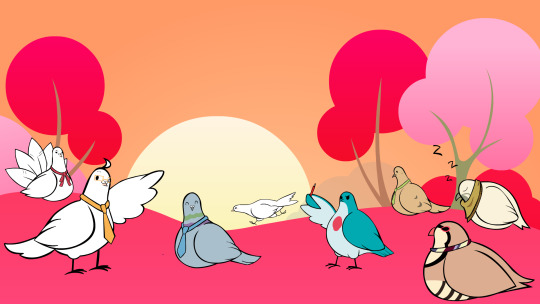
It's clearly originally just for the ridiculousness of it all for the players, but AGH it explains so much regarding the extremely rampant classism/racism/speciesism and how apparently normalized it is. It also, to me, adds a bit of moral nuance to the Dove - Hawk Party conflict.
(Long post under the cut. I'm so sorry I just kept going.)
First off, I'm obsessed with the concept of the birds becoming sapient and simply... taking over a society that was not structured for them. It leads to difficulties in universe! Bird wings are not made for doing tasks that human hands can do naturally - there's a couple instances where the characters ask for Hiyoko's assistance or express envy since she can just do the task more easily than they can. The birds are outright disadvantaged in certain areas of life, and yet, the society is in such turmoil due to the newness of it all that there still aren't really any workarounds for stuff like this.
Not that there haven't been any suggested solutions, such as the Labor 9 series, put forward initially by the Dove Party. Yeah, you know, that one throwaway line about how the party that up until this point have been the "good guys" wanted to take still semi-conscious human brains and make robotic slaves out of them Cyberman-style? What the hell. And what gets me is that Shuu was able to find the initial proposal, which he really only made tweaks to, which means that the project was at least close to being finished on the conceptual/planning/design phase before somebody went "hey this is a little fucked up actually".
The Dove Party wants peaceful coexistence with the humans, while the Hawk Party wants to eliminate humanity entirely. But we don't really go into how these two lines of thought evolved. I believe I have a suggestion for at least one part of the puzzle though.
Of all the birds in Hatoful, who enjoys the most privileges and the highest status? Fantails, it would seem. A breed of pigeon that is popular as a pet, considered beautiful and sought after, and achieve high accolades in shows and competitions - for clarity's sake, fantails were valuable in human society, and this status appears to have transferred when birds became sapient and took over. Conversely, which birds are ranked lower and often blocked from entering certain higher class places? Rock doves, who, in human society, are given an unfairly bad reputation, and considered anything from unclean and dirty, to nuisances, to pests. Again, this status transferred over when the birds took over.
So, while we don't know too many of the birds who make up the agents of the Dove and Hawk Party, let's take a look at who we do know of.
Fantails (Yuuya, Dove Party) are considered valuable over other doves and pigeons for being specially bred for their striking tail feathers
Cockatiels (Leone, Dove Party) are some of the most popular and beloved companion birds, kept as pets and considered very friendly
Rock doves (Ryuuji, Hawk Party) are considered unclean pests who receive a bad reputation, and are generally not treated with respect or appreciation <;- notable thing to mention here is that Ryuuji actually does like humans - I think he was only Hawk affiliated for the grant money and research facilities, which... fair enough man.
Chukar partridges (Shuu/Isa, Hawk Party) are game birds, specifically bred and released to be killed and eaten, and considered a delicacy
...do you... see what's going on here?
(I haven't mentioned Tohri as he's a special case. Give me a minute and I'll get to him!)
The birds we see in the Dove Party are those birds that were already viewed in a more favourable light by humans, a favourability that transferred over to their new society. Of course they are more likely to advocate for coexistence! They have less to lose, overall. And the Labor 9 series, and how that could've ever been suggested in the first place, suddenly makes a lot of sense. For many of these birds, society the way it exists now benefits them. Some of these high ranking Dove Party folks may be less about actual peace and justice (like Yuuya or Leone) and more about maintaining the current order of things - humans coexisting under their control, while they get to maintain their status... which is itself a product of human invention.
The birds we see in the Hawk Party, by contrast, are looked down on or hunted. Historically, even before bird sapience, they did not have a harmonious relation with humans - and it's likely this status carried over to their new society also, with many of these birds being more likely to have been disenfranchised. Their goal of elimination is therefore reactionary towards perceived threat. After all, the people who suffer when things go wrong aren't the ones at the top - it's all the people who sit at the bottom of the social rung; the vulnerable members of society who do not enjoy the same advantages as others.
Of course, the Hawk Party has built itself up into such a powerful group that they may have lost touch with this starting foundation - the only thing that remains is likely that reactionary fear. After all, people caught up in the actual conflict - Nageki, Hitori, Ryouta, and Hiyoko - see this kind of horrible bloodshed firsthand (firstwing?) and just want it to stop.
Again, it's not usually the people in these political factions who are the ones caught up in their conflict. It's the individuals who lack power or influence.
But that's just the political groups themselves. On an individual level, it's kind of interesting to look at and theorize where along the spectrum our core cast falls based on their species/breed.
Ryouta (rock dove) is actually rather indifferent towards humanity as a whole - he just likes Hiyoko. However, his witnessing of the Heartful House tragedy led him to abhor violence and unnecessary loss of life, and I'd imagine his mother's later illness solidified this. Ryouta doesn't seem overly interested in political struggles or the broader implications of a lot of things - he's actually a rather self-oriented character when it comes down to it (this is not a judgment, nor a bad thing! I love my boy!). Ryouta just doesn't want to lose people, really. A conflict would mean more loss, and rock doves seem to have to struggle enough as is.
Hiyoko (human) is the daughter of two diplomats, but interestingly, we don't get to see much of her political views on things - perhaps because even if she expressed them, it wouldn't really matter - she's not herself a diplomat, and humans are the lowest of the low - her going to a fancy school doesn't really change that. Social-wise, except with her friends, she is tolerated, not accepted. Yet, it's safe to say that Hiyoko strongly disapproves of people who flaunt their status - she's quick to not take crap from Sakuya, to get angry on behalf of Ryouta and herself over the gull clerk's assholery, and also to defend Miru and Kaku as living beings worthy of respect. Interestingly though, she also uses Okosan's status as a fantail to get Ryouta to let go of him and let him do whatever he wants so... it's kind of unclear what her firm beliefs are. Perhaps, as a human, she still values fantails more highly. I don't know honestly. Implicit bias?
Sakuya, Yuuya and Okosan (fantail pigeons) may share the same breed, but their experiences are highly different. Sakuya is largely separate from the human-bird conflict, as he is unlikely to be directly affected by it. As such, a lot of his story and development has to do with actually learning and un-learning about the world outside of the limitations of his "father's" classist views, which he simply mimics without understanding the larger implications. Yuuya and Okosan, on the other hand, may be fantails, but are also looked down on and often treated as inferior - Yuuya for being a "half-breed" and for his reputation, and Okosan for being closer to feral than a lot of other doves. Interestingly, these two show more interest and respect for the individual than Sakuya does, who often makes sweeping generalizations based on status - which makes sense to a degree, as they've been on the receiving end of this kind of treatment, whereas Sakuya hasn't. Okosan believes that each person has their own "wonderful names" (read: identity outside of breed or status), while Yuuya is a genuine fighter for justice who is able to get to the heart of people, especially in Holiday Star. However, even though they have experienced classism, they still have certain privileges with regards to species/race - take Okosan's shock when Hiyoko and Ryouta are barred entry from his favourite store. None of them are quite as out of place in everyday society as some of the other birds here, and it's notable that "diverse" St. Pigeonations still apparently has a significant fantail student population.
Shuu (chukar partridge) is really interesting, as he doesn't particularly care for the politics of the Hawk Party, and yet his role as a killer/hunter of both his fellow birds and humans is an interesting reversal of the chukar being a game bird. Shuu also has a disability (his semi-paralyzed right side) which hinders him in bird society even more than most. His extreme, yet coldly logical solution to kill all humans to stop the fighting between them, could be as much his rationality, as his joy in the sadistic, as a reactionary survivalism (remember he was caught up in a human terrorist attack as a child - while overall he considered this beneficial to him, he also did lose much of his colour vision and the use of his right side, so it did leave him weakened). Shuu attains control by "flipping the script" as it were.
Tohri (golden pheasant) starts out in the Hawk Party, but much like his colleagues, doesn't seem to care much for their politics. Golden pheasants are game birds whose eggs can be eaten, but are more often bred and kept for their plumage - they're not prey, but they're not exactly pets either. All this puts Tohri in this interesting position of being somewhat in the middle of this conflict, and indeed he goes on to be a part of (found?) the Crow Party - an opportunistic group that seeks to benefit from the overall conflict. Golden pheasants are birds intended to be admired for their beauty and intelligence more than anything else, benefitting in some ways from humans without a strong connection or a reliance, and Tohri's opportunism fits nicely with that. (As an aside, our sole crow character, Albert, is also something of an opportunist, being an assassin on the fringes of society.)
Hitori and Kazuaki (button quails) are somewhat interesting. It would be both expected and understandable if Hitori held hatred for humanity after the Heartful House incident, or even before then, considering they were all war orphans. Instead, he doesn't seem to harbour any particular ill-will - he seems totally fine around Hiyoko, and her being a human has nothing to do with his reticence with letting Nageki hang out with her in the shrine universe. Kazuaki, too, doesn't seem to mind Hiyoko being human and isn't afraid of her any more than he is anyone else. While quails are game birds, with both meat and eggs being eaten, button quails are too tiny for that and are mostly kept as pets - they are considered cute, silly, and entertaining, though a bit too jumpy to be outright companion birds. The quails don't seem to experience too much in the way of speciesism (except arguably with the whole mistaken identity of Kazuaki's corpse... there may be a bit of an "all quails look the same" thing going on perhaps). At the very least, they are able to occupy teaching positions at a renowned school as respected intellectuals, and did go to university. Still, it's kind of a known thing that you don't put button quails with bigger, more dominant birds, since larger birds will often pick on them or even outright try to kill them simply because they're small and shy - this may, in hindsight, explain some of Kazuaki's demeanour.
Nageki (mourning dove) and Anghel (luzon bleeding heart dove) are the two who are uncommon bird species in Japan. Nageki is another war orphan, who would be forgiven for harbouring resentment for humanity, but instead is appalled at the violence and made a huge sacrifice to get it to stop. It's kind of unclear how Nageki fits into this society, as mourning doves are not prey or pets - they're wild birds. They live on the outside of the human world, and while Nageki exists within current bird society, he likely doesn't have a designated status within it. Nageki is unfortunately also alienated from much of the action due to his illness and later his untimely death - this is why a lot of Nageki's thoughts are somewhat from an observer's perspective, with his most emotional moments being derived from his rare direct experiences - specifically the Heartful House tragedy and the human killings he was forced into, which solidified a really firm stance of not wanting anyone to suffer like that. Anghel is another outsider, this time genuinely a foreigner, as opposed to Nageki. Again, Luzons are wild birds, not prey or pets, and so it's a bit unclear what his status is. This might explain why Hiyoko repeats Sakuya's remarks towards him without apparently realizing they're actually insults - Anghel is removed enough from the conflict she is familiar with that it seems she doesn't quite... get it. Again, Anghel's role is as this strange kind of omniscient observer, whose perspective is closer to the player's than to the rest of the cast. He definitely frowns on the Hawk Party's overall goal - the Demon Spores are evil to him, and his main objective is to stop them from spreading, as they would cause damage to both birds and humans. I attribute his morals to his mother having raised him right lol. The lack of a clear status for both of them may be why they appear to take the stance of judgment based on individual actions, but are not heavily involved in the conflict itself - while humans tend to like mourning doves and luzons, there isn't much interaction that goes on between them. Nageki and Anghel are simply less embroiled in bird society's human-derived status conflict, which makes them both outsiders and observers.
As a bonus note, Azami, Rabu and Kenzaburou are all species of birds that can be kept as pets (java sparrow, budgie, parakeet), which may account for some of their friendliness towards Hiyoko, and Kenzaburou's willingness to hire her. Kenzaburou is even a bit old-fashioned it seems - he sleeps in a cage, which implies his ancestors were probably pet birds themselves. It's likely he, in particular, has more positive views on humans.
...Please tell me I'm not the only one who spent ages thinking about the implications and workings of a fictional post-apocalyptic bird society. Also I hope this made sense I kind of went off the rails here.
#storyrambles#anyways this was supposed to be a quick write up. yet here I am three hours later. does this even read properly anymore. help.#the one thing i'm a little unclear on here is how the ichijou family fits into all this. ichijou mino the headmaster was a nicobar pigeon#i find it likely mino was hawk affiliated if we're going with the trend here (nicobars are heavily exploited for food/#gizzard stones/zoos/illegal pet trade) and also note that he signed off on the human representative directive#but i want to know how shuu fits into that as he was formerly ichijou utsuro. who has the ichijou name? why different species?#are they prominent benefactors of the hawks? interesting to think on#also i was thinking about the gulls - they seem to be fairly high class but gulls definitely do not have a good reputation with humans lmao#however gulls get to do whatever they want a lot of the time because they are loud. and like to bully others (including humans)#i hereby propose they gained power by doing much the same once birds gained sapience hjfhbdf#hatoful boyfriend#hatoful spoilers#holiday star#hatoful meta
168 notes
·
View notes
Note
I mean, I’d love to hear your varcie thoughts!
(again, these are my opinions only. we can discuss to avoid fighting if ever there is disagreement lol ;w;)
READ UNDER THE CUT
ok so i will preface this by saying that everything is framed in the context of SDMI since marcie appears in that show only. vaphne and varcie are both good ships, but i prefer varcie a bit more due to how in sync velma is with marcie in a way that i think is even more aligned than she is with daphne in the show. and an extra element that i think seals the deal for me!

the first is the most obvious, which is velma and marcie being more aligned in interest and intellect. daphne is also intelligent, but it manifests more in her empathy and social navigation rather than hard knowledge and investigative method. this difference in approaching problems is important, and since marcie has the same (or near the same) informational understanding of the world as velma, this allows her to help velma in more straightforward ways. one example is how they were able to reverse engineer a tracking device from a chip they found, making investigation easier. given velma's one-track mindedness for mystery-solving, this could be read as commitment on marcie's part.

velma and marcie also both come from the same circuit. while different interests have not hindered velma and daphne from forming a meaningful friendship, it did affect priorities for them, the most obvious one being personal pursuits. having similar approaches to problem-solving allows velma and marcie focus on the task at hand most, if not all, the time. this lessens the likelihood of derailment and friction. a fair thing consider though is there's speculation here due to how brief marcie's appearance was in SDMI.


second is how they made each other better people in the short time they had on SDMI. as i said in a previous post that i like vaphne because V&D make each other better people, but we see this across the span of many shows and movies rather than being contained in a single storyline, so it feels less urgent and more stable. i felt like in SDMI, it was more of a given that V&D would be there for each other rather than a development i'm supposed to follow. in the case of velma and marcie, it was such a delight to see them develop into each other's support systems, even if its origins were off-screen in the time between seasons. personally, this feels more heartwarming because you see how big the changes are in velma when she came to terms with who she is and dropped whatever pretense she had about what she thinks she needs. it was refreshing and freeing to see her not want to change anything about marcie because she already knows that this is what she needs.
in marcie's case, she finally found a friend (and possibly more) in velma and doesn't feel like she has to put up walls around her. it's fairly simple since she's a secondary character, but it doesn't feel any less earned.
the whole rivals-to-friends-to-lovers thing is honestly so peak, i have to say.

third and last is...there's an element of reckless abandon that adds a lot of drama to this ship--which is ironic since both girls are shown to be very logical and grounded. what does this mean? you have to excuse me for being a bit delusional, but it reads like love to me. i think this is a unique factor of varcie, where our girls make dangerous, borderline bonkers calls in the name of love for each other.


we all know what happened at the end of marcie's arc, but there were other instances where she willingly laid down her own safety just so velma can achieve her goals. it almost feels kind of like a soap opera, where love takes over logic by way of self-sacrifice (figuratively and *sigh* literally). like you gotta realize how insane it is for marcie to say yes to going into the heart of Mr. E's lair to steal the disks for velma (and mystery inc). that is not a light favor to ask, and not a light favor to agree to!

on velma's end, she has to swallow her grief and see things through to not waste marcie's sacrifice. that is not an easy thing to do either. there's a tinge of madness happening in this ship that's driven by love and i think that's bittersweet and beautiful :( i try to be normal about this ship, but i fail most of the time lol

so yeah, that's pretty much it. thanks for being patient and reading my thoughts on varcie. i wanted to make sure what i'm writing made sense, so hopefully it does (??). if there are any violent reactions, let me know, we can talk about it :D
32 notes
·
View notes
Note
On every character sarah writes having the same personality: why does every main girl have to be this big planner who has multiple plans on backup and never tells people, only to surprise everyone when everything goes right at the end with no prior explanation... idk if I'm putting this right, but it just made me very... annoyed
Like yeah, that worked great with Aelin, sure, but for me it just doesn't fit with Bryce? Especially on how she was just thrown at this and suddenly figured out she was The Chosen One(tm). It really bugged me, idk
Fair warning, this post rips Bryce a new asshole - not as a person, but as a character that sjm created. So I'm putting it under the cut.
Just to start, in context I said that all the hofas characters ended up having the same personality - though you can make a case for her reusing a lot of the same descriptions and such for all of them. ANYWAY...
To me, the issue is not just that Bryce keeps doing things behind the scenes that we never get any hint of, it's a bigger issue that we never get a hint that she even gives a shit.
With Aelin, at least we already knew what she was working towards and why. We already knew what she cared about and how far she was willing to go to get it. Aelin caring about Terrasen and her court and saving the people she loved was never in question. Her trauma from finding her parents dead, her fear at losing the rest of the people she loved, the weight of responsibility that she felt, we knew all of those things pretty much from the get-go. Her tendency to shut people out could be considered a flaw because she didn't trust other people to help her. We don't know about Terrasen right away, and tbh I don't remember what history we get instead and so I need to reread, but I can point to very specific values, goals, and motivations that make Aelin act the way that she does.
But Bryce - the central problem with her as a character is that Bryce doesn't care about anything, and sjm never figured out what she cares about, either.
Characters need to have central things that they care about, that drive them, motivations, things that they fear and things they would go to great lengths to protect. They need flaws, and clear relationships to the world around them. I could make a list of those things for a lot of her characters. Not all, but most.
With Bryce, I have NO IDEA what those things are. That makes it so that when she randomly find Emile, it just seems like she did it to come across like a nice person. She doesn't care about what humans are experiencing, she shits on Vanir/fae all the time, she treats Hunt pretty poorly, she isn't close to Juniper or Fury (see: their near disappearance from hofas), Danika kept so many secrets from her that I seriously doubt the depth of their relationship. Bryce was working in that library museum thing for Jesiba (I'm already erasing the series from my memory oh my god) and going out and partying and that was all well and good, but... was she going to do those things when she's 200, too? I'm not even saying that she needs to like, go get married or whatever, but she literally has no goals in life!
SJM saying that Bryce is the fun, cute party girl who also has a deep, intellectual side, a pretty woman who can also kick ass, okay, but she needs a reason to kick ass. SJM completely forgot to include the second half of that equation, which is ironic since that was a big point of her character - to prove that women can be feminine and strong, wear high heels and be smart. She failed miserably in my opinion, if that really was the goal of Bryce's character.
When Aelin is snarky to people, I know why. When Bryce is a bitch, it comes out of nowhere and is often turned on people who actually deserve her time and attention and empathy (e.g. Sathia). Aelin is an asshole to that one dude whose name starts with a D because he's a man who is underestimating her and wants to refuse to let her lead because he assumes she will be bad at it. When Bryce is an asshole to Sathia, WHY. I mean really, I wanted to throw my book across the fucking page!!!! Because that's a perfect example of how, if Bryce was guided by a set of values (feminism, I guess?) then she would have responded very differently to Sathia, who has experienced literally the exact same thing Bryce has (being betrothed to someone against her will). Instead, Bryce throws that line back in her face about "well I never let that stop me" as if what Sathia has experienced is her own fault for... not trying enough??? PLEASE. ARE YOU SERIOUS RIGHT NOW.
The whole "girlboss" thing needs.... something driving it. You can't just bulldoze people and call it being empowered. And I think that sjm has really, really simplified gender and sexuality in CC to the point that that's really the only distinction that matters. That's maybe another issue. I just have a lot of thoughts about these things lol.
Anyway. This is what happens when you write a character built on aesthetic and #girlpower, rather than making them a complete person with fears and values and joys and goals and motivations and flaws.
Okay one more point, this is NOT beyond sjm's capabilities. She obviously is much better at writing characters than this. I just think that sometimes, something suffers when you try new things. In CC, sjm was giving actual world building and magic systems a go. And the characters, really, REALLY fucking suffered for it.
#sjm critical#hofas#hofas spoilers#spoilers#house of flame and shadow spoilers#anti bryce#using that tag for the first time ever but oh my god#I don't plan on harping on this topic a lot#it's just...#definitely been on my mind#ask#anon
61 notes
·
View notes
Note
what are your honest opinions on Les Mis 2000
Before receiving this ask, I had only seen a little under half of Les Mis 2000 (French version). In order to provide a fair and complete response to this question, I started over and watched the entire show from beginning to end over the course of 5/6 weeks.
I will provide more details below the cut, but my completely honest opinion on Les Mis 2000?

Looking at the show as a whole, without considering adaptational value, it's scattered and confusing. A lot of storylines get picked up or dropped with little to no explanation, the characters and their motivations make little sense, and the time skips are inconsistent at best (Félix abandons Fantine when she is still pregnant, JVJ is released after Cosette is already 4yo and just being left at the Waterloo Inn/Fantine is already on her way to Montrieul-sur-Mer, Immortal Gav is 12 for ten years, meanwhile Javert undergoes a dramatic appearance change many scenes into the time skip, Cosette ages up when I assume the time skip takes place, and Depardieu [I refuse to call him Valjean] never ages until after the wedding). If you look at the context, it makes sense: they decided to (rather than dubbing after the fact) shoot everything in French and then again in English, so of course performances are going to flag, editing is going to be a mess, and the storyline is going to get lost in the changes they've made while shooting two shows at once.
Which takes me to my next point: as an adaptation, it's also incredibly weak. I don't know if I should be blaming the writer, director, or a terrible combination, but so many elements are not only not accurate to the book (fair enough, if you want book accuracy watch '25 Les Mis or '64 I Mis, or '72 Les Mis for accurate barricades specifically) but seem to totally miss the messages of the book altogether! Fantine was always in trouble before she gets fired (undermines Hugo's message that even doing everything "right" Fantine was still put in an unwinnable position), Javert gets his usual "obsessed with JVJ specifically and also treated as unusually cruel by everyone else" treatment, Gillenormand looks out for this fellow old man who was a gardener and has now been joined into his family by marriage, and Depardieu's character is going to get an entire section below. The Thénardier sex scenes are a lot but ultimately harmless compared to, say, the part where Javert cuts his hair (?) and attends law school with Marius and Enjolras as himself (?), and then later arrests the entire class for treasonous speech. This kind of belongs in the previous editing section, but a lot of the reveals (Marius knowing his neighbors are the Thénardiers, the Thénardiers recognizing the old man in the sewers, Cosette knowing her dad saved Marius, Gillenormand and Marius knowing Cosette's dad's background, Depardieu's character knowing about Javert's death) happen WILDLY out of sequence, and since they are plot-driving sequences, the motivations become confused, the choices make no sense, and you get scenes like Éponine trying to coerce Marius into having sex with her. I kind of liked the switch from jet beads to stinging nettle fabric except again, it didn't matter because Fantine's downfall was so badly done (forget that she turns to sex work immediately, only later selling TEN TEETH and her hair to make ends meet — Javert threatens to [and later does] arrest her for the completely legal profession of sex work before showing her where she can sell her teeth???) and Madeleine was so opposite from everything his character is supposed to be and show.
Which brings us to our next point: yes, in both the English and French versions, Depardieu's performance falls flat, but more importantly, there is an inherent misunderstanding of who and what Jean Valjean is at each phase of his life. I'll be honest, there was a lot going on when he was in prison with Javert tormenting JVJ for fun and the fire that Cochepaille needed saving from and Myriel announcing that he was buying JVJ the same way Judas sold Jesus and Cosette already being with the Thénardiers, so I don't have much feedback about JVJ's characterization or the paper that was yellow like sunshine at that point, but (ignoring the fact that Fantine apparently shows up in Montrieul-sur-Mer with no established factory in sight) then he becomes the most corporate businessman possible, with no regard for the wellbeing of his employees or town who spends all of his time running numbers? The hospital is underfunded, he only rubs elbows with other government officials/bankers, he is painfully out-of-touch with the people of his town, and apparently he doesn't even pay enough for Fantine to be making ends meet even before she is fired. A big part of what JVJ goes through in the book is that he feels like he cannot safely express his feelings about the system to anyone, leading him to act like a scared animal after Petit-Gervais, living in constant fear of being kicked ( @secretmellowblog has a great post about this here), but this Madeleine is CONSTANTLY venting and complaining to anyone who will listen. Not only that, but after he leaves M-sur-M, the police admit to Javert that they knew who he was and just decided to ... leave him be? This isn't a man who's living in fear, and this isn't a man who has to make hard choices in order to do good and help his fellow man. For some reason, Sister Simplice seems to be like 85% of his morality? (and we are very much skimming over the romance subplot that was going on there) So it doesn't even feel like he helps Fantine altruistically, it feels like Sister said "Please help" and Depardieu sighed and went, "Fine, I'll see if I can't pull some strings." When he gets Cosette and begins taking care of her, it feels ENTIRELY self-serving and creepy, and he later confirms with his own words from his own mouth that his feelings for her are not fatherly. He cares about prison reform because he experienced it, not from any sense of altrustic human kindness, and Toussaint ends up robbing him for having taken a chance hiring an ex-convict? (because ofc this Toussaint is a mute manservant, not a maid who can actually help Cosette, because all of Depardieu-Dad's choices are to serve himself, not to keep Cosette safe or happy). By the time Marius is sending Depardieu's character away, it's the only only adaptation that you're cheering on Marius, because this man calling himself Cosette's father who bought her for 1500 francs and still sometimes shares a bed with her and locks her in various rooms and has just admitted his love is not fatherly needs to LEAVE.
Finally — and I will freely admit that this is the pettiest section — the historical accuracy is in shambles. Electricity in the 1820s? 1840s fashions in the 1830s? The hair and makeup are given as errors, but how do you have accurate men's shirts and repeatedly let them wander around without cravats? And no one, not a single person, thought to check 1800s French currency? Sending Cosette off to buy bread with FIVE FRANCS (~$100USD)? Leaving one hundred thousand francs for the funeral of someone who canonically doesn't even have a marked grave? Even the part where Fantine sells her teeth: these were simple numbers they could have checked (two teeth, one napoléon aka twenty francs each — not ten for four each). All of the prices and amounts were in the book. It is not that hard to call the imaginary coin being passed between two characters a sous instead of a franc: we couldn't even see it.
I spent a lot of time thinking about how I would respond to this ask before finally answering, but ultimately, I was asked for my honest opinion, and this is it: it missed the mark for me in every way. I'm sure there are some people who enjoy it, and I am happy for them, but it is not an adaptation that I would recommend to anyone looking for a good Les Mis adaptation or a well-executed show.
#I try very hard to be objective under the cut in my reasons for this opinion#but it is multiple paragraphs and may feel a bit harsh so opting out after seeing the tldr .gif is totally fine#answers and shitposts#salieri27#les mis 2000#les mis
42 notes
·
View notes
Note
Hi! I have a question, I hope I can explain myself: how would you describe Gojo on a moral level? I see the majority of the fandom (jjk in general, not just the shipping ones) considers him a good person, but I'd argue he's more on the grey side...and not a light grey. See, I can't really wrap my head around the way he blatantly ignores the fact the Suguru was completely fucked up, to the point that in chap 236 he wishes Suguru was with him before fighting Sukuna and imagining him (adult Suguro, the fucked up one) together with the same students he tried to kill in jjk0. How on earth? If I'm not mistaken Gojo never really says "yeah, Suguru was my friend but he used to be completely different, this is not the Suguru I used to be friends with". He never says Suguru was wrong. He just misses him, even though he was surrounded by people who liked him. At least Shoko clearly doesn't feel any affection towards Suguru. And let's not talk about the way he doesn't really seem concerned about the future of his students in chap 236. What do you think? Just to clarify: I do like Gojo. But I don't share the sentiment of the rest of the fandom: he's not a good person. I guess Nanami was right
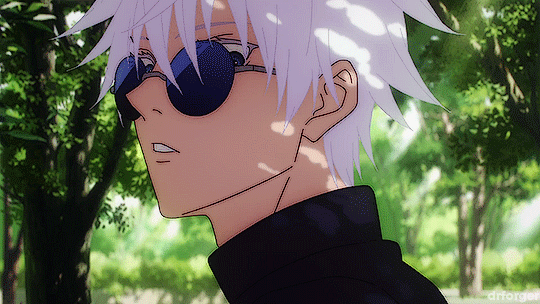
This is a (somewhat) fair assessment.
Character alignment wise, I think Gojo enters into Jujutsu High as a Chaotic Neutral and transcends into more of a Chaotic Good or maybe Neutral Good? It's hard to say because, if in universe, Gojo is the perceived solution to every problem then why are there still so many problems? Including Geto's 10 year stint running amok?
Morally, Gojo absolutely exists in shades of grey. He uses his power to do the lawful thing but... at the same time, could, on a whim, use his power to do what he or Geto feels to be the right thing. The biggest example being the fact that they were willing to protect Riko Amanai's right to choose whether she wished to merge or not even if the latter would have catastrophic ramifications. Based on the needs of society, Riko needed to merge with Tengen, but Gojo recognized erasure of one girl for the security of others wasn't necessarily right. As an adult, again, he does what needs doing but pushes back on elders that would rather see the likes of Yuta Okkotsu or Yuji Itadori dead.
We have to understand that jujutsu society, with all its rules and hierarchy, isn't a morally upright system to begin with. Gojo, as a Big Three Family heir, is deeply entrenched in that. But he has enough sense to, in his own way, try to correct what he perceives to be travesties.
Suguru Geto is a casualty of this imperfect system and Gojo's initial inability to recognize Geto's struggle was the fatal flaw that put the final nail in his coffin. Discovering the twins was the hand that swung the hammer and he was subsequently radicalized. Gojo wasn't the only person who still kept space for Geto. Nanami and Shoko could also understand that the slaughter of that village was wrong but not find it in their hearts to condemn Geto or hear ill words spoken against him. None of them condemn him because, even if his method was wrong, they understand why he desperately wanted to change the way things are.
Gojo's affection for Geto, in my mind, does not necessarily make him a completely bad person, though. For one, while he doesn't outright condemn what happens in the village, he is clearly dismayed by the murder of Geto's parents. We see that he does in fact understand the wrongness of Geto's transgressions. Bear in mind that, until broken by the system they all served, Geto was a gentle and just person with a noble idea of what was right. So earnestly that Gojo allowed space for Geto to influence his own morality. So this radical change in behavior is a shock to Gojo's system and, even though he was used to deferring to Geto's judgement (like not killing the Time Vessel Association), he very clearly and autonomously recognized Geto's sins. Gojo had an unconditional acceptance or love for Geto which is why, despite everything, he would still find satisfaction in closing the loop, as it were, with Suguru right beside him.
⚠️ Spoiler warning for JJK chapter 236.
The man is dead, what more do you want from him? He knew he was going to die and fought hoping that those who remained could pick up the slack of the weakened opponent. 236 was merely an echo of the same faith he had after he was sealed - that he trusted in the people he left behind. I think Gojo has also come to terms with the fact that all he can do is throw everything he's got at the situation. His failure is unfathomable to most but he's been shown the limits to his power before so perhaps that's why he's overly cavalier. In most situations, he's the first line of defense so if that doesn't cut it... what more can he do?
Bear in mind, what we see of Gojo's afterlife in 236 is more than likely what he hopes for in his heart of hearts. But I'm not really subscribed to the idea that he's Gojover. I could be wrong, especially since Gege Akutami keeps comparing other people to Gojo in his absence to fill in the gaps and explain how they could possibly hope to beat Sukuna. But I think what we saw was an extended version of what Nanami experienced before passing.
You can go left or right - Yuki to Geto about his radical ideals
You can go North to start anew or South to your old self - Mei to Nanami and actualized in his dying moments with an apparition of Haibara
These are choices and the second is as explained to Gojo as if he has the same choice. From his hope that it isn't all in his imagination and the setting therein, it would seem he's leaning toward accepting his fate but I just don't think that's the case. If anything, this prolonged ideation is possible because that brain of his is intact. Gojo even told Toji that he should have cut off his head if he wanted to kill him so, who's to say whether that applies now.
Regarding Nanami being right, I assume you mean the Nanami in chapter 236. In which case:
Hypothesis: The reason we see Gojo surrounded by younger versions of those he lost is because they are attached to the version of himself that died. Gojo will come back as a more enlightened person.
Keep in mind, in a way, Adult Nanami understands Gojo. Every version of Nanami is annoyed by Gojo but there's still a respect that goes both ways, even when their ideals differ. I think Nanami's assessment that "You live for jujutsu. You don't wield it to protect something. You use it solely for the sake of satisfying yourself." is apropos for high school Gojo. But that was before he lost Geto, developed a resolve to take in Megumi and Tsumiki (albeit selfishly), protect Yuta from the elders with his life, and protect Yuji. Empirically, there's a facet of Gojo that uses his power for good and it feels like the versions of Haibara, Nanami, Geto and Yaga that he encounters would be unaware of that. I think that's what makes the fact that Gojo visualizes Adult Geto celebrating him stick out even more. Why the mind games, Gege??
In summation, Gojo continues to exist swathed in shades of grey. He could be better but he could definitely be worse. He is a reflection of a corrupt system that masquerades under the impression of working in service of the greater good but ignores the problematic elements of the likes of Mei Mei, and Naoya Zenin.
#neon asks#anon asks#manga with me#manga with me jjk#gojo satoru#satoru gojo#jjk gojo#anime#manga#jjk meta#character analysis#gojo brainrot#jjk brainrot#gojo character analysis#jjk#jujutsu kaisen
60 notes
·
View notes
Text
Hazbin Hotel Live Blog: Welcome to Heaven
Coming back I found I did enjoy the last episode far more than I did the others. It obviously suffers from who the director is, but I could still see the more competent writer underneath certain portions of the episode. This one is written by Adam Stein who was credited for six episodes of Harley Quinn, a series I admittedly do not particularly care for. I wouldn’t consider the series bad and I enjoy scenes more than the whole, but its clear that Hazbin and much of Medrano’s writing ideas are in many ways ripped off from Harley Quinn far more than Bojack Horseman. To be frank, if Medrano had stuck her comparison to Harley Quinn, I doubt she would be criticized nearly as much as she is for her writing. I know, for myself, if she had compared her shows to Harley Quinn and never once breathed in the direction of Bojack Horseman, I wouldn’t have ever been motivated to even criticize this series. I think a comparison to Harley Quinn is fair, it is an objectively worse version of Harley Quinn, but it is better suited to the style and audience of that show far and above something of high art and value like Bojack. Harley Quinn is simply not my tastes, I wouldn’t say it’s bad, but even with a gun to my head I could never in good faith consider it good. It’s better than Hazbin and Helluva Boss, but its also a fairer comparison.
Vaggie adds “gah” to her line about being a liar in the most painful way. While they obviously paid Stephanie the most, they in no way paid her enough to care. It was physically written into the script and it highlights how little the actress actively participated in the series. She didn’t even try to make it sound natural, she doesn’t care for the character she is playing and she doesn’t care whether or not we know.
It makes no sense that Angel Dust is still working for Valentino. He could just stay in the hotel and ignore Val’s calls and texts like we have actively seen him do. So it’s like he hates working for Val, does so under duress and due to a contract on his soul, but Charlie is the princess of Hell whom Valentino openly stated he was threatened by and her hotel and patrons are under the protection of Lucifer who aligned himself with Charlie and her goals…. Just don’t go? There is Vaggie, Charlie, Lucifer and even Alastor who are more than capable of handling someone like Valentino on their own, let alone as a united front. Why is this still happening?
The physical comedy falls flat. Cheri grabs Sir Pentious’ hand and it cracks and is all mangled like it is broken, but he has zero response to it. The humor requires there to be a reaction to the level of violence displayed. Having not even a minor one means the sequence may as well not have happened, and it frankly feels like an excuse to just say Alex Brightman was in the episode and have him say as many lines as possible regardless of whether or not he should. I genuinely don’t understand why this character is even in Hell. Who is he as a person? Just why?
Sera says she only green-lit the exterminations so that Hell didn’t act up, and places the blame on Adam for Lucifer getting involved. But then she just… keeps letting Adam do what he’s doing, which is what caused her to feel threatened like this in the first place. So essentially “This is all your fault because of the things you’ve done. So keep doing them.” I don’t even get why Sera or any of Heaven feels this way about Hell. I assume Sera knows Charlie’s plans about redemption, but she seems threatened by it? When in reality treating Heaven like a prize for sinners seems like a logical way of cooperating with Hell and even maintaining civil relations.
Also, can I just point out how the character designs really fail to send any sort of message. Alastor, Niffty, Velvette, Carmella and her daughters, Rosie, and Mimzy are hyper humanoid demons in a Hell where non-human designs make up a majority of the cast and the distorted, abstract and animalistic designs in Hell make sense, whereas Heaven is mostly humanoid with random demonic designs walking around. It fails to send a message as well as just makes Heaven and Hell entirely the same. It fails to really sell the idea that Heaven is in any way better than Hell. Honestly, demons should have less human designs and appear more twisted and deformed. Heaven should have prioritized humanoid figures. Especially seeing as Medrano with a heritage in Latin America and Christianity would know that the idea of Christianity she is supposedly criticizing emphasizes that humans were made “in the image” of god and angels. It also sets up an idea of one’s soul being cleansed by having this “godly” form. Mixing in furry designs at the same rate as Hell collapses any argument for media literacy or messaging being made.
Welcome to Heaven as a song is the best song of the show thus so far. It is the One Short Day of Hazbin, a vapid superficial scene-setting song that isn’t meant to further the characters, just the plot, and it actually succeeds. I’m not amazed by it, never would i play it for enjoyment reasons, but it works for the role it plays and is the only song that does so well.
Adam is telling Vaggie her own backstory, my favorite bad writing trope.
Additionally, I thought heavenly weapons were the only thing that could harm an angel. But Lute just rips off Vaggie’s wings with her bare hands. It really confuses the world when you don’t even keep to your own rules.
In the previous episode, Charlie says the hotel isn’t “working”, this episode has Adam demanding “evidence”. The lack of understanding what Charlie is looking for when she says Progress is never defined. On one hand she says Angel Dust is making progress, but just the last episode said that the hotel wasn’t actually helping anyone. Even at the start of the episode we don’t see any change in Angel Dust, just that he’s sad. He still swears performs sex work, is rude and crude, and at no point has his situation with drug addiction been addressed in any way. I can appreciate not wishing to say someone performing sex work is committing sin. As well as the implication that how one holds themself is unimportant to Heaven. But I think everyone can agree that drug addiction and abuse is harmful to those in the addiction and those who care for them. And also, it is extremely difficult to break. Drug addiction would be an excellent analogy for sin and breaking it would work as a parallel for redemption easily. So why is it the one thing you had going for you in way of themes and a show of progress and character growth we’ve never actually even addressed. In fact, Loser Baby enables the idea that Angel Dust’s use of drugs is fine because he’s a loser anyway. Just give up on yourself. So when this episode inevitably implies that Angel has actually been making progress on that front, it’ll make no sense.
That happened a whole lot sooner than I thought it would. And it being Husk saying he thought Angel was “Better than that” really does make his whole message in Loser Baby hypocritical. Him being the one to judge others on how they cope, offloading his hypocrisy on the excuse “I’m not trying to get to heaven”, but then still performs the emotionally abusive tactic of publicly and maliciously shaming is partner into a form of compliance. And this is the romantic relationship I’m supposed to be going nuts over? Even in the case where one can argue he is doing it from a place of concern, he has never once cared about Angel’s drug use in the series. It has never been mentioned in any detail of it being harmful. It is literally placed on the same level as his hypersexuality in the song Loser Baby, which we are supposed to wave away as not being harmful because he enjoys it. The line is he “samples” every sex toy and drug. This is just the Alastor must be lying because nothing makes sense argument, except its the world that doesn’t make sense and thus nothing can be trusted and the suspension of disbelief and the act of world building is inherently gone. This isn’t even a story at this point. It is merely a bunch of drawings doing things for nearly half an hour because time is money, and Medrano likes money.
I feel the setup isn’t too bad. It’s the story of Job, which, yes, you should use the material you are criticizing if you are actually seeking to criticize it (whether or not Medrano’s is even attempting a critique on Christianity is hugely up to debate, but that’s not for this kind of post). It’s Lucifer in the Bible coming to the court of god and saying he’s been on earth observing the humans. He claims humans would never worship god if not for god incentivizing them through blessings and so god is like, “bet, do your worst”. Except, in the Bible story it shows god’s callousness. He allows Job to suffer and gives permission to Lucifer to torture this faithful man, of which when Job laments, god chastises him for doubting. This removes the negative qualities of god from the story by just watching Angel Dust make his own decisions. Which works for the idea of free will, I suppose, but the idea of free will being imagination from the last episode to now just waiting for Angel Dust to choose to conform to an idea of morals takes away any meta critique on the nature of heaven. Just saying.
Still not a fan of how infantilized the show makes Niffty.
The scene with Angel standing up to Valentino was such an attempt at an emotional reaction, and in reality it only succeeds in tiptoeing the edge of emotional catharsis. It never gets to reach that point because we don’t actually see the way that Val and Angel interact most of the time. And I’ll just say it, the Poison sequence ruins this scene. It set up this idea that Angel Dust has complicated feelings for Valentino and in many ways their relationship is just as much an addiction as the drugs. But we never see the harmful side to Angel’s drug addiction and nor do we see his complicated feelings for Val break down as he grows closer to Husk. It is unearned. And then having Charlie point blank say why that scene exists for the narrative kills any and all investment. It was there just so Angel Dust can fit Adam’s checklist. So there is no authentic emotions attached to that scene from the ground up. It is a contrivance that feels almost hateful in its existence.
Why is Adam treated as Sera? Adam was the one who made the list, but Emily contributes it to Sera. Sera didn’t even know how a soul ends up in heaven, all she says is “he was the first human soul here”, meaning she defers to him to understand. To have her be the one saying not everything is written in ink, when she openly is the first one to say she hasn’t any idea, really confuses the lack of story you are trying to tell.
So, the whole series has now confirmed it has no clue how to tell a story. “If Hell is forever then Heaven must be a lie”, so the idea of moving between heaven and hell is not a concept. Someone from heaven cannot fall to hell and someone from hell cannot enter heaven, except they can. Vaggie. Her entire existence is proof that heaven isn’t forever, so why would Hell be? If anything, Vaggie should be a spark of hope for Charlie. Additionally, the threshold of whether souls can be redeemed has nothing to do with if they can or not. Rather, it ends the same way it began. No one is in control and no one has any power one way or the other. But Vaggie being in hell, despite being an angel, who was never held in a court to determine if she should fall or not and was deemed unholy by humans, not the council of angels, just brought this whole house of cards down. In fact, the person on trial should have been Vaggie, and in extension Lute. Who is Lute to have the right to make such a call compared to Emily? Why does no one bring up this discrepancy? And having Vaggie on trial instead of an ignorant Angel Dust being critiqued without his knowledge would have been a better vehicle for not just exploring Vaggie’s past, but also the ideas surrounding redemption and banishment and the values/hypocrisy of heaven. As it stands, this episode was a waste of everyone’s time.
Adam Stein brought nothing to the table, all the same issues in Medrano’s writing are present and played out here. Adam may as well be a ghost writer as he didn’t even attempt to bring any of his own strengths to the script. I can’t say I’m surprised at this, however. It is just Harley Quinn after all.
2/10
#vivziepop critical#vivienne medrano#vivziepop#spindlehorse critical#vivziepop criticism#spindlehorse criticism#hazbin critique#hazbin hotel liveblog#hazbin critical#hazbin hotel criticism#hazbin hotel critique#hazbin hotel critical#hazbin hotel#hazbin criticism#adam stein#harley quinn
45 notes
·
View notes
Note
I do adore how absolutely unhinged all of the Eye-aligned characters are; Jon is trying his best to be normal but is also the "it's remarkably easy to buy an axe in London guy," Gertrude mutilated a man and threw his body in a hole, and Jonahelias did...all that. Maybe the spooky eyeball really does eat social skills/morality because the 3 of them are freaks of the highest order
Oh I think you’re sort of getting at something that I consider one of the defining features of the Beholding as an entity! (Keep in mind this is all just my interpretation and I don’t claim to be the defining authority on this subject.)
While the Eye certainly could be the reason for the general unhinged-ness of our three featured avatars, I would like to submit the alternate theory that it was the other way around; they were Already Like That, and that’s what drew the Beholding to them. I feel that the Eye is kind of unique in how it views its avatars. Many of the entities behave primarily as predators; they are interested in their avatars only insofar as they can use them as tools with which to hunt, and they override their original form and personality to facilitate this. They don’t really exercise their own will anymore; rather they exist as an extension of their patron. In ep 47 Jon asks The Distortion, Michael, whether he owns the hallways Helen got lost in; in response, Michael replies, “Does your hand in any way own your stomach?” I think this sums up the way avatars become incorporated into their patron entity really well. Michael isn’t a person anymore, he’s an appendage, grabbing the Spiral’s prey and dragging it into the hallways to be digested. Now some entities, notably the Web, clearly DO have agendas beyond simple consumption, but the Web is, to put it lightly, a control freak. It doesn’t have any interest in its avatars having free will. Annabelle is a puppet with a head full of spiders. She’s not herself anymore either. Basically, most of the entities don’t gain anything from their avatars having free will, so they take it away.
The Eye, though? The Eye does gain something from its avatars having free will. In fact, their free will is kind of the POINT, isn’t it? Elias, Jon, and Gertrude aren’t puppets, because puppets aren’t any fun to watch. In my opinion, the Eye isn’t USING its avatars so much as it is excitedly observing them like lab rats. You wouldn’t want your lab rats to be puppets subsumed by your own will, because that would be boring as hell and also pointless. You wouldn’t learn anything that way, and nothing exciting would happen because you’d already know everything the rats were going to do. You want them to participate in the experiment! Their participation is essential, actually! So, instead of taking over their minds or twisting them into monsters, the Eye provides its avatars with the necessary tools (compulsion, partial omniscience, etc) to be really great at data collection and then it just sort of…sets them loose and watches to see what they find out! Of course, for this laissez-faire approach to work, it needs the sort of people who are already inclined to do the necessary legwork. If you’re a voyeuristic eyeball god and you have the ability to bestow individuals with cosmic powers, you’re gonna give them to people who are gonna do something interesting with them, and Elias, Jon, and Gertrude certainly don’t disappoint. Even before Jon started to feel any of the physical effects of Beholding’s hold, he was exploring the murder tunnels, stalking his coworkers, and throwing himself in the path of avatars in a desperate attempt to satisfy his own curiosity. Gertrude was basically running around trying to fistfight every single entity and blow up their shit. Both of them were basically putting on the best show possible. Tragically, we don’t know much about Jonah’s own path to Beholding, but I bet the room the Eye allows for its avatars to retain their free will and find things out for themselves would have drawn him to it over the other entities. (I do also headcanon that he originally was quite impulsive, inclined to throw himself into potentially dangerous situations in order to satisfy his curiosity like Jon, and had to learn over the years to temper these inclinations in the interest of not dying.)
Anyway, tl;dr, the eye WANTS freaks of the highest order and that’s why they’re all Like That. Thanks for your ask <33
36 notes
·
View notes
Text
Well, I can hardly believe I chose this to be my fourth original post, but meh, who cares. Anyway, random note about Howell Jenkins!
Firstly, I'm talking about book Howl, which is why I spelled it Howell - this is his original name, he changed it in Ingary to sound more impressive. He's actually from Wales, which honestly means little to me as someone who never set foot in Britain, but I think I get the general gist of it.
Many things can be said of Howl. He's not really a noble and gentle, if slightly narcissistic, person as you might think after watching the movie. He's mostly a selfish coward, likes to woo ladies but seemingly afraid of commitment, is very bad with money, and... Umm... Yeah, there are other posts that do a better job than I am in characterizing Howl. That's not what I'm here to talk about. Suffice it to say that he's somehow likable in spite of all these flaws.
What I am here to talk about, however, is two common misconceptions about Howl that are somewhat related to the flaws listed above: one is that Howl is running away from student debt and didn't finish his doctorate, and the other is that he invented the titular Moving Castle to evade taxes. While those actions are indeed in character for Howl, they are both contradicted by the book itself (to a degree).
To start with the first one: Howell only talks about his thesis once in the book - when explaining to miss Angorian, an English teacher, why he has a magic spell. Book readers likely know who I'm talking about, and for non book readers, I'm afraid I'll leave the rest of the context to your imagination. Either way, Howell tells miss Angorian that she may have heard that he wrote his doctoral thesis on charms and spells. Notice, "wrote". As in past tense.
To be fair, that doesn't necessarily mean he finished his doctorate. As a matter of fact, it could be a rumor he started in order to explain away why he had spell books. It certainly won't be the first rumor Howl started for his own convenience. But if it tells us anything about him having a doctorate, it tells us he finished it. I don't know much about student loans in UK during the 80's, so that isn't a point I can say anything about, but I am given to understand it was less of a problem.
So, did Howl run away from his doctorate to the magical land if Ingary? No, he didn't. He actually kind of fulfilled every nerd's dream of both doing what he likes most and using it to write his doctoral thesis, killing two birds with one stone. To be honest, what I still don't get is why he kept contact with his old world. I mean, Suliman seems to have cut ties - we never hear of him going back. But Howl, even if we didn't see him use the black door as much at first, seems to keep some contact with his sister and her family, keep a car etc. He might only visit rarely, but he still does.
Anyway, for the second misconception I decided to bring in the big guns: a direct book quote about why the moving castle. Not all quotes on the topic, though, because I'm lazy. Anyway, look here:

This is in chapter four of HMC. It's revealed later in the book that the "someone very powerful" is actually the Witch of the Waste. So, the Moving Castle is there to show everyone what a Horrible and Powerful Wizard Howl is. Also, to avoid attention from the Witch of the Waste.
Sophie herself, in the next paragraph, questions the usefulness of such a tactic. I think it might actually be an explanation of why Howl decided the Castle had to be moving - maybe it's harder to magically detect that way, I don't know. Either way, it's not to avoid taxes - especially considering the fact Howl has an address in Kingsbury, the capital of Ingary, and that this address is known to the local authorities.
I would also like to prematurely dispell an almost plausible headcanon: Sophie's hat-sewing causes so much of the plot, after all. So you might be tempted, when reading that she told a hat that someone should set Howl and the Witch up together, to think that she's responsible for that as well. However, considering the quote presented above, it appears that Howl and the Witch dated before Howl created the Moving Castle, which was the inciting incident for Sophie hearing about him. Thus, Sophie is not guilty whatsoever of getting Howl and the Witch together - just of being oddly on point.
Thank you for reading, and have a good day!
#howl's moving castle#hmc book#diana wynne jones#howell jenkins#howl pendragon#Horrible Howl#The moving castle#dwj#hmc
14 notes
·
View notes
Text
In light of my recent post about Acotar, I wanted to gush some about my favourite Beauty and Beast and Ballad of Tam Lin (and a sprinkle of Bluebeard) YA retelling.
Cruel Beauty by Rosamund Hodge ❤️
This is mostly going to be a gush fest and recommendation for anyone who was also excited by the idea of meshing Beauty and the Beast with Tam Lin and ended up utterly disappointed with Acotar.
Some very mild spoilers (mostly Worldbuilding)
Cruel Beauty is a fun and easy read: YA Fantasy Romance with plenty of popular tropes and archetypes, like the arranged marriage, forced proximity, enemies to lovers, etc
This book still manages to engage in such interesting ways with the original tales it's based on.
Instead of stealing the aesthetic of the Og fairytales and other folklore and mythology like in Acotar.
Any defining fae feature of Sjm's characters is immediately removed in the very beginning of Acotar (the lieing, the iron, etc), turning the characters in what amounts to hot magic people. Even their supposed long lifespans barely impact their behaviour or culture.
Cruel Beauty continuously builts on its roots, making them an intrinsic part of its narrative.
In Acotar outside of the very shallow narrative skeleton of the Beauty and the Beast tale, you could strip away the faerie and folklore elements, and you're left with the same story. The only changes you might need to make are to find a new name for Tamlin (while not that serious, I considered it quite offensive when I first read this series as a teenager that Sjm would take that name and then turn that character into an abuser).
In Cruel Beauty, however, both the defining elements of the Beauty and the Beast story and the Tam Lin story are crucial to the development and resolution of its plot.
The Beast of the story is cursed, as are the inhabitants of his castle. Nyx, our Beauty character, is offered in exchange for a mistake her father made. As she is unknowingly about to break the curse, the Beast lets her go back, but when she returns, it's too late to break the curse.
This is when the story morphes into the Ballad of Tam Lin, and Nyx has to win her lover back from the Faerie Queen in much the same manner as Janet did in the ballad, even saving him from a very similar fate.
The Bluebeard elements, which to me always seemed more like references than an actual retelling, are still really apparent and well integrated.
The representation of the fae is also great in this book. This is especially remarkable due to the fact that the actual words fae or faerie are never used once.
Instead, they are referred to as the Kindly Ones.
However, they are clearly trickster folk who make bargains with unwitting humans that always end up going wrong in cruel ways. They are fair, never directly lie, and always keep their end of the agreement. They place a lot of importance on names, are otherworldly, eerie, etc.
Basically, they actually seem Other, instead of talking and acting like frat bros from the 21st century.
This book differs from a lot of other Fae Fantasy, however, in the way it mixes Greco-Roman Myths with more Celtic Germanic Folklore. It creates a really fun interplay between these cultures, both in-world as well as on a meta level.
First of all, there are some other (in my opinion, more mediocre books) that do throw a lot of mythologies together. CB sets itself apart with the fact that it does so with a lot more purpose than others do.
In many people's minds, different cultures and mythos tend to be viewed as very separate. However, just looking at the Greek and Roman myths, it's already pretty clear that every time cultures clashed, so would their myths and stories.
This is a well studied phenomenon. The romans especially were well known to basically mash up their deities and myths with those of every new culture they interacted with.
And CB uses this brilliantly. The story is set in an alternate timeline, in which, after the fall of Rome, a kingdom known as Arcadia was created by former Roman generals/nobility. This mirrors actual history, during which many early medieval kingdoms would seek their legitimacy in their connections to the Roman Empire (see the Holy Roman Empire aka Germany).
But in CB, the fantastical elements are meshed up in this as well. This allows Rosamund Hodge to create an interesting interplay between the Greco-Roman Mythology imported by the elite in Arcadia and the more Celtic/Germanic Folklore elements native to the land and its population.
So, yeah. Go read Cruel Beauty, please.
#cruel beauty#rosamund hodge#acotar critical#acotar#anti acotar#anti sjm#sjm critical#pro tamlin#i guess#the ballad of tam lin#beauty and the beast#Tam lin#ya fantasy#book recommendations#I actually had whole bit about comparing the characters of Cb and Acotar#but it was a lot#that said Nyx actually has the complicated sister relationship#like Nyx and Astraia hate each other#but they love each other#they would kill for each other#and they do#Nyx is literally ready to murder the love of her life for her sister#sjm could never
54 notes
·
View notes
Note
Hi! You think arthur wasn't premature? Do you think he was planned ?
Hi! Sorry for taking so long to reply! Honestly, I'm unsure whether Arthur was carried to term or genuinely premature. I've been meaning to make a poll about it because imo this is such an interesting speculation. The arguments in favour and against Arthur being premature would be, in general lines:
Arguments in favour:
Elizabeth of York seems to have been sick during her pregnancy. Preparations had been made for her arrival at York for the king's northern progress but she did not go. After her labour, she definitely became sick (she had an 'ague', as the herald recorded). Hyperemesis gravidarum could explain Elizabeth's sickness and possible preterm delivery.
The Earl of Oxford, one of Arthur's godparents, arrived late for Arthur's christening ceremony, delaying for a couple of days. If Arthur was born premature it could explain why Oxford had not made his way yet to Winchester by the time of his godchild's birth.
Henry VII was famously prudent, which was also talked about during his lifetime, and that might have hindered any premarital relations. He went to great lengths to have all the necessary marriage dispensations and to have his marriage formally recognised by parliament as a state necessity. Given the whole context of past accusations of illegitimacy against royal heirs, it would be out of character for him to risk having his heir born before they could get a papal dispensation and undergo a formal public wedding ceremony. Henry himself declared to the papal legate that 'he cannot fulfil such desire [marriage] without obtaining canonical dispensation'.
Arguments against:
Arthur was described as a 'fair prince and large of bones' at his birth. Being described as a big baby does not sound like someone who was born before his term. His parents waited a few days for his baptism thanks to Oxford's late arrival so they definitely thought him healthy enough to risk the possibility of him dying before getting him the sacrament. At that time, babies who died before baptism were considered unable to go to Heaven, and many hasty baptisms were performed by midwives soon after the child's delivery if their health was considered to be in danger. The herald who registered the proceedings of Arthur's birth and christening never once did mention that Arthur arrived early or that Elizabeth of York 'was delivered suddenly', like she was said to have the last time she gave birth (1503).
In medieval England, betrothals could be as binding as an actual marriage. Elizabeth of York was described as Henry VII's 'wife' since December 1485 and seems to have moved into the Palace of Westminster around that time, that is, they started cohabitating from then on. It's possible they became husband and wife in practical terms after a declaration of intention to marry followed by consummation (marriage per verba de praesenti).
Although Henry VII made sure to get all the necessary papal dispensations (3), the fact is that he did not wait for the arrival of all three dispensations and quickly married Elizabeth after the arrival of the first one — only two days later, in fact. Did they rush to get a public wedding because they had already been living as husband and wife? Did they do it because they feared Elizabeth could already have been pregnant at that time? Why couldn't they wait until March/April when the other dispensation, signed by the Pope himself this time, arrived?
The papal representative that gave them their first dispensation arrived in England in January. It's possible they already knew about his arrival back in December and knew that they could quickly get their first dispensation through him (they certainly did prepare for his audience), so cohabitating (and everything else it entailed) would not be as risky and imprudent of them as we might think nowadays. Alternatively, the papal legate might have already been in England by December but could only hold an audience in January once Advent/Christmastide was over.
Henry VII's prudence aside, they might have simply had the hots for each other. Thomas Stanley declared at the papal audience that he often heard Elizabeth and Henry talking together about their marriage ('often and at divers times treating and communing of and about a marriage to be contracted between them') and that Elizabeth had 'great and intimate love and cordial affection' for Henry. Stanley was the only witness to cite Elizabeth's love and affection when questioned, so it does not read as an argument line that was agreed upon between all the witnesses before the audience. Interestingly, in the ballad The Most Pleasant Song of the Lady Bessy, Thomas Stanley is portrayed as Elizabeth's trusted friend. Similarly, the Earl of Nottingham, who claimed to have known Henry for twenty years, was the only one to cite Henry's 'singular love which he bears to her'. The pregnancy calculator sets Arthur's full-term conception as 29 December-4 January, so could Arthur have been a Christmas/New Year's celebration baby, conceived during a time when court etiquette was particularly lax and the mood particularly festive?
This is all I can think now but there might be other arguments either in favour or against the theory. I've been meaning to read a new biography of Arthur Tudor recently published whose author seems to think Arthur truly was premature, so I'm curious to know why he thinks that. Of course, the theory that Arthur was premature does carry a certain weight. Every argument against it can be refuted, including for example, the idea that Arthur would have looked small on the day of his birth (20 September 1486) if he was conceived exactly on their parents' wedding night — he would only be a week short of his full time, then. If he was conceived later, though, he would have been even more premature. It's difficult to say.
111 notes
·
View notes